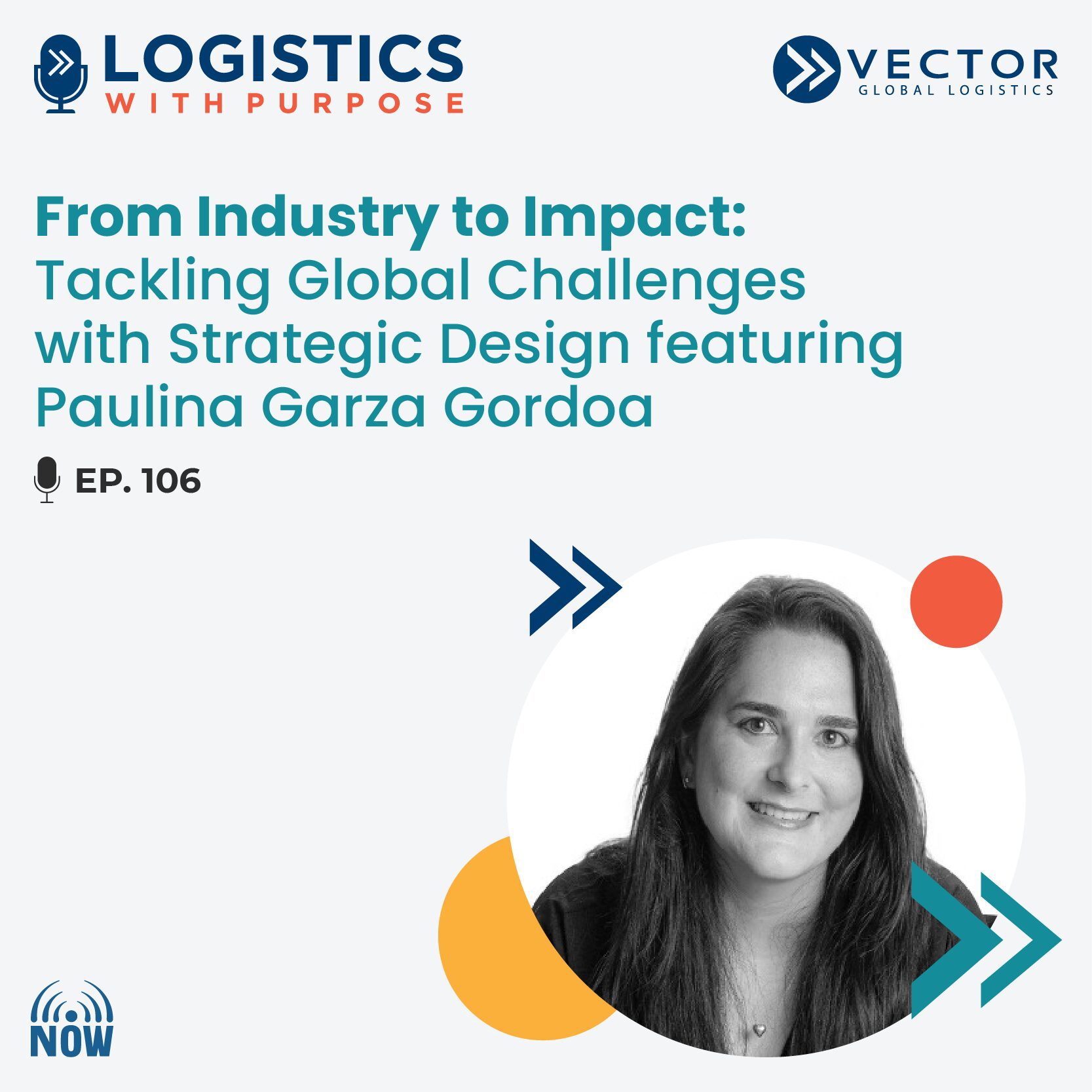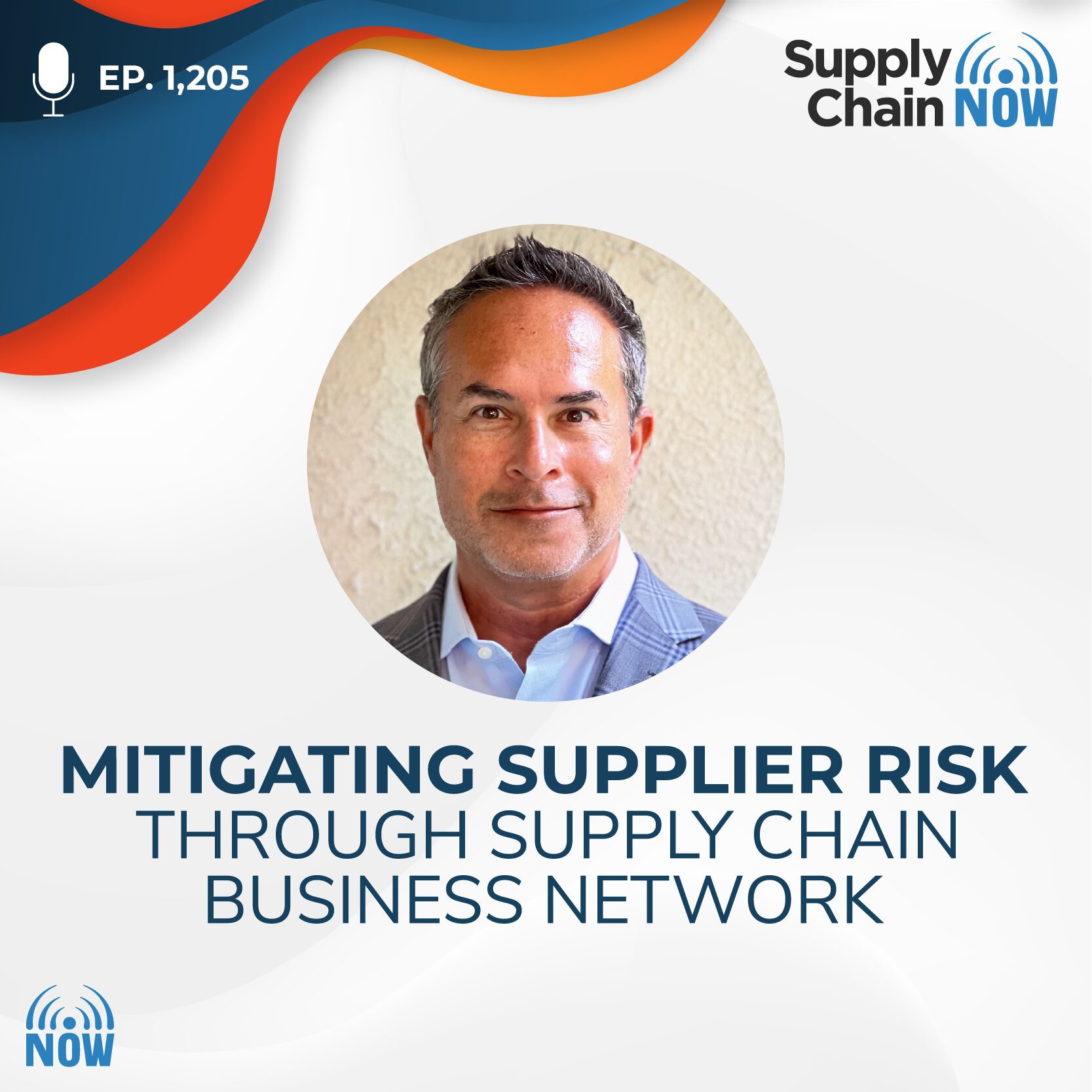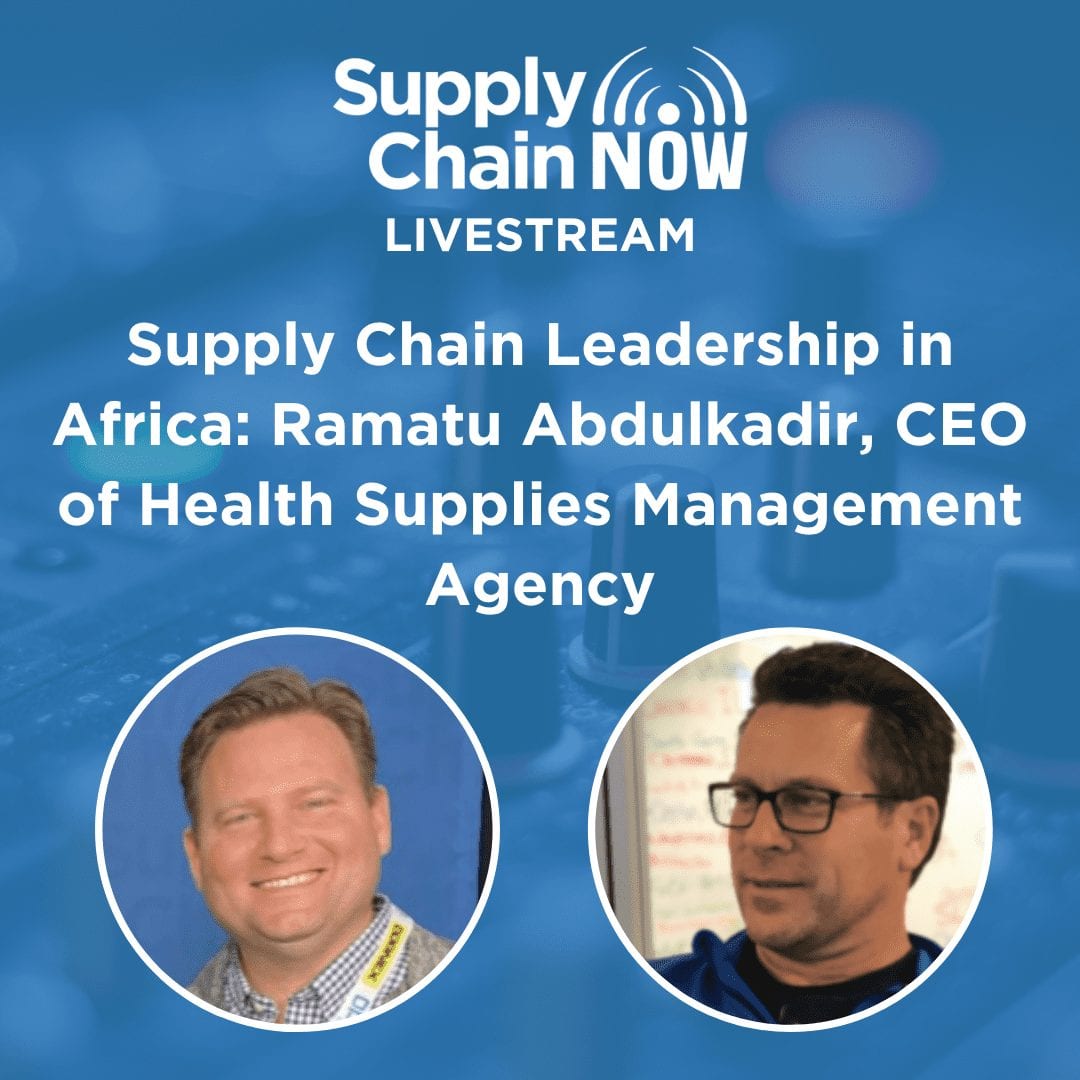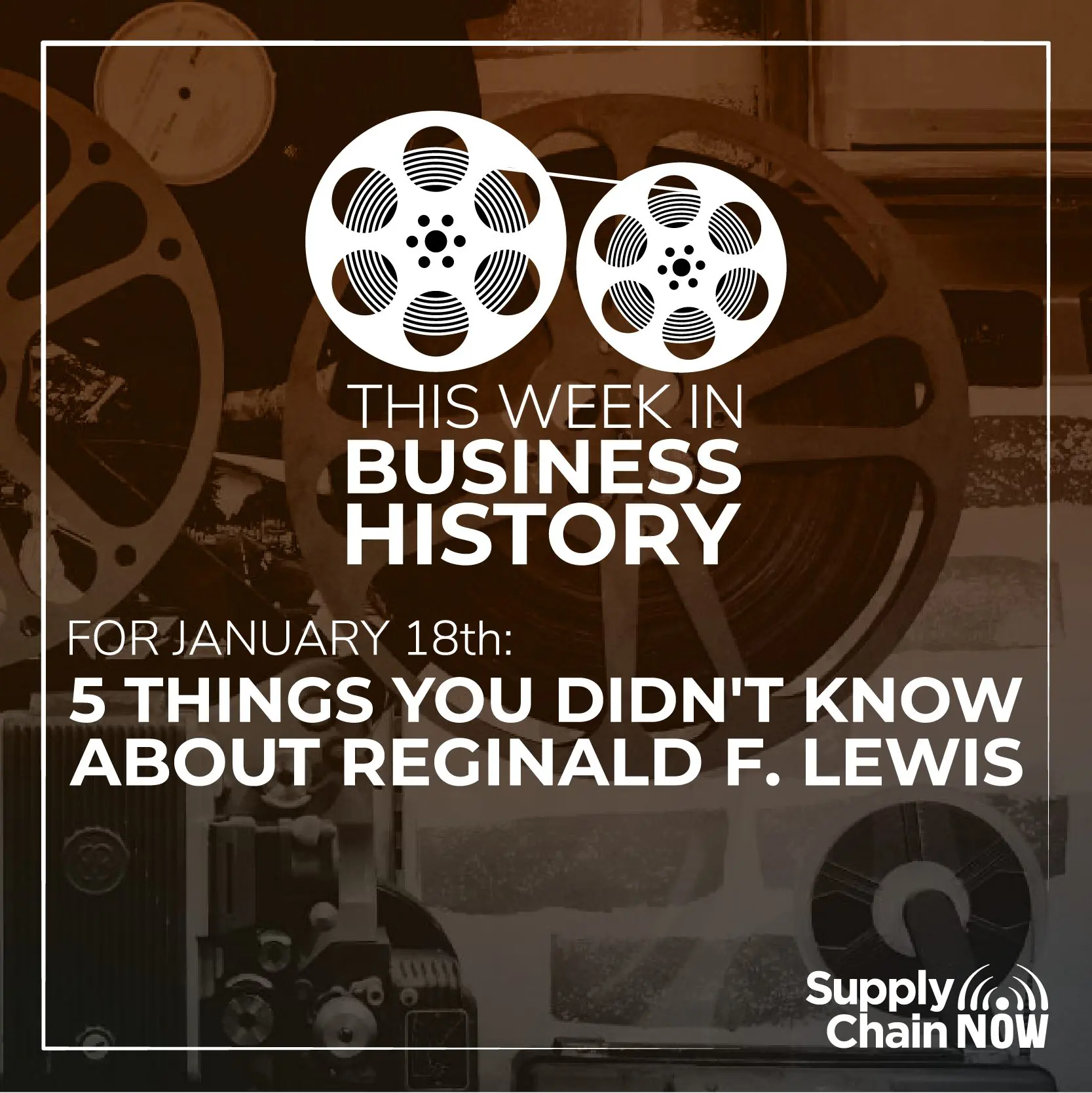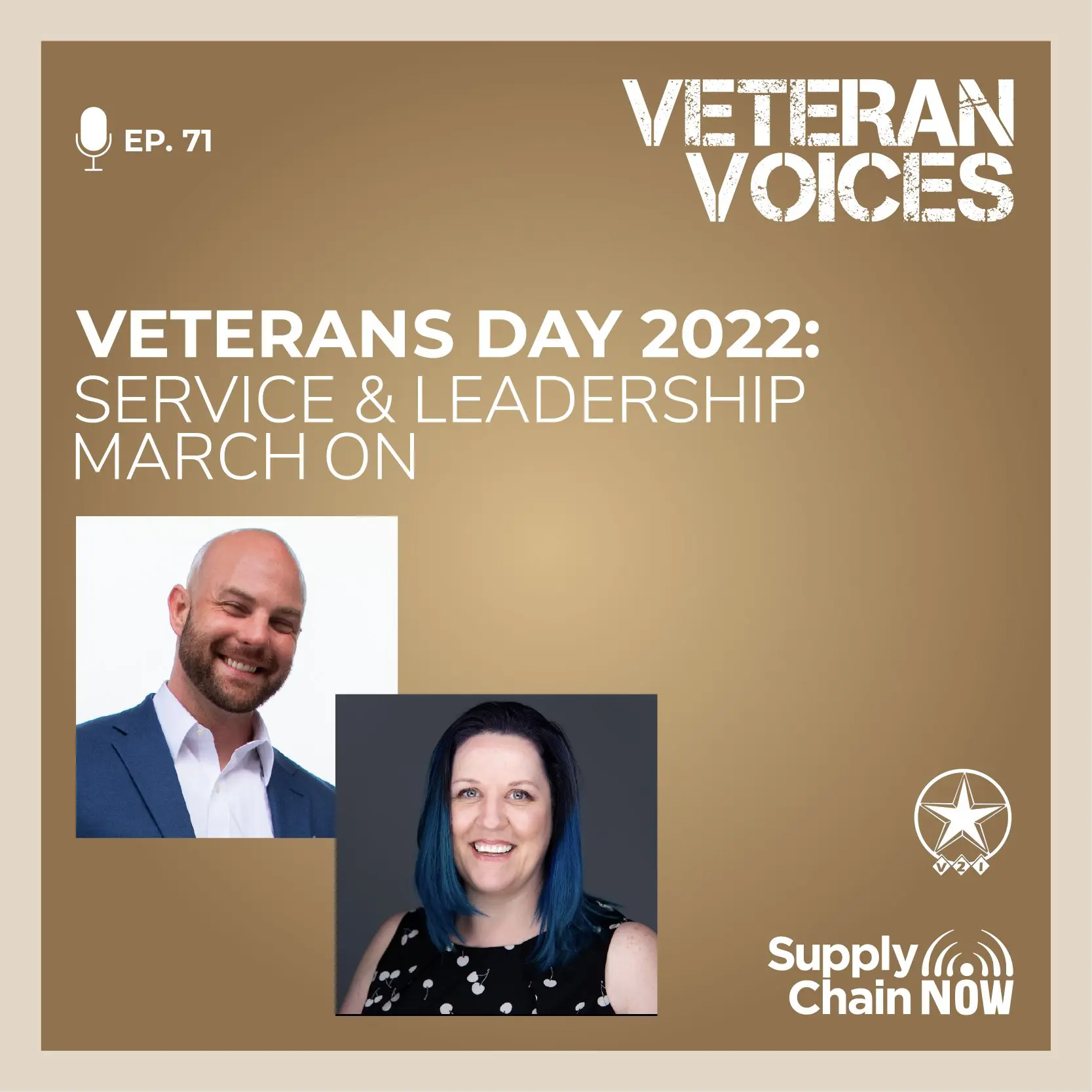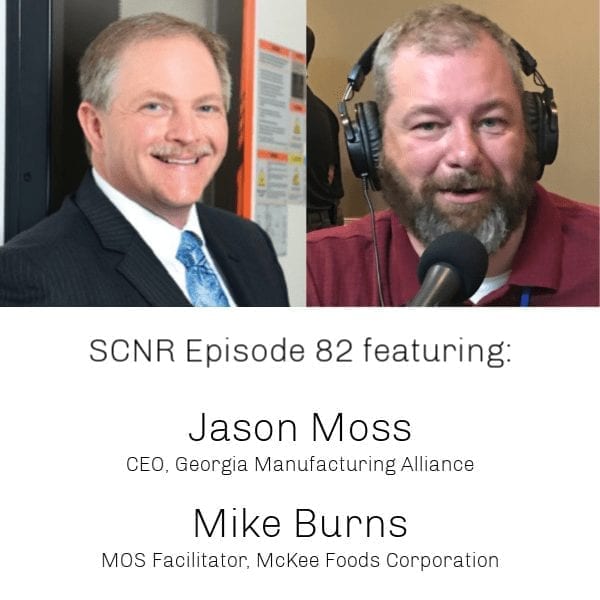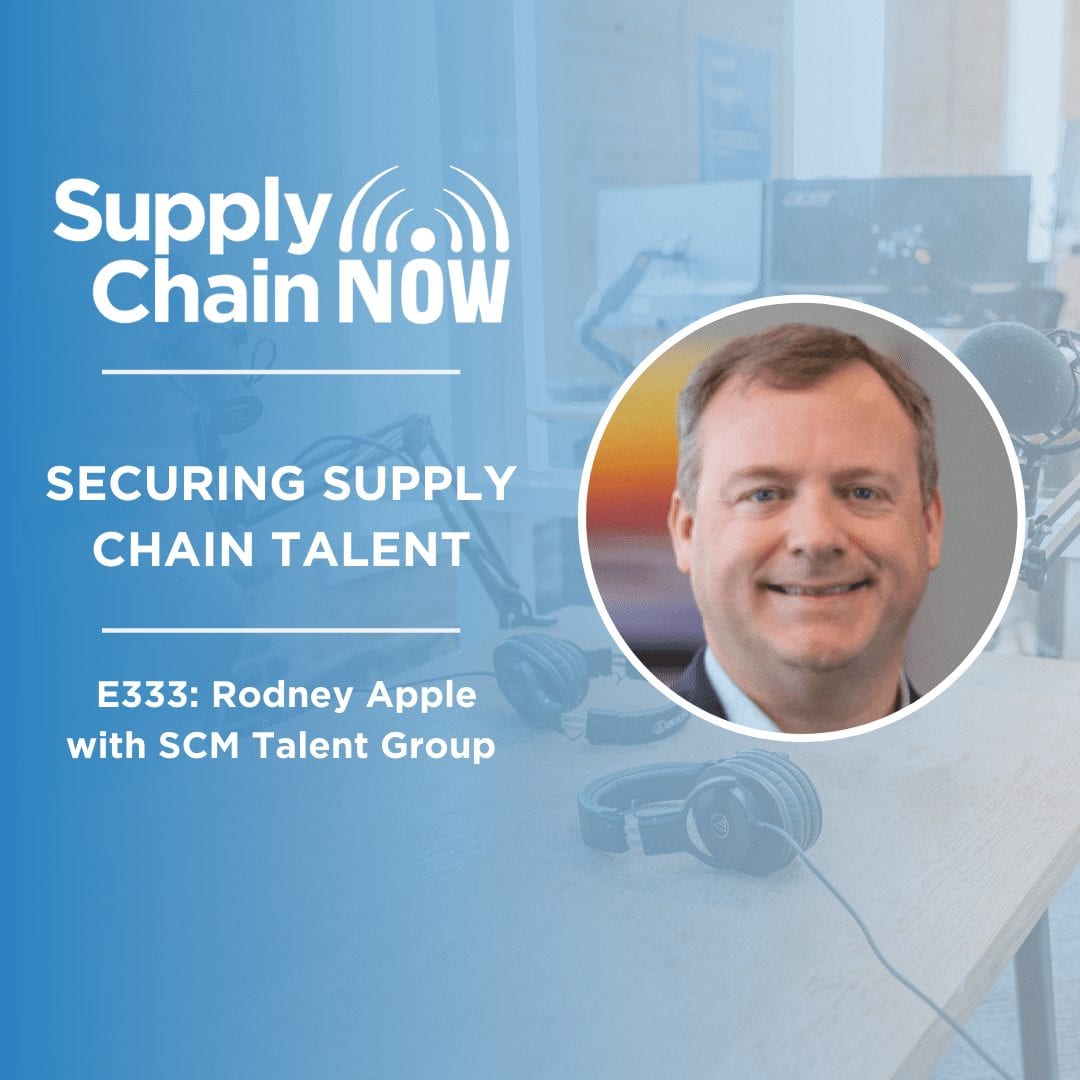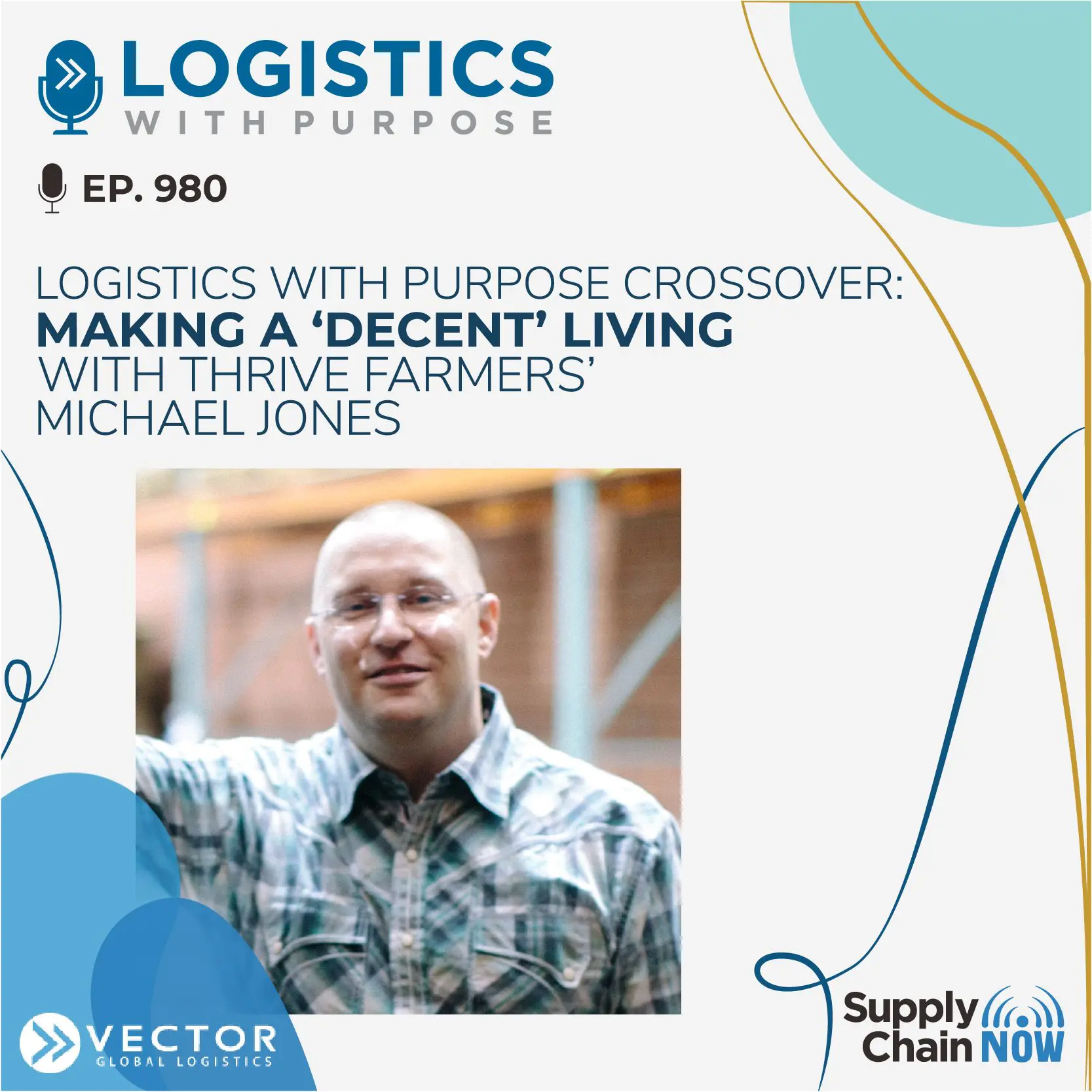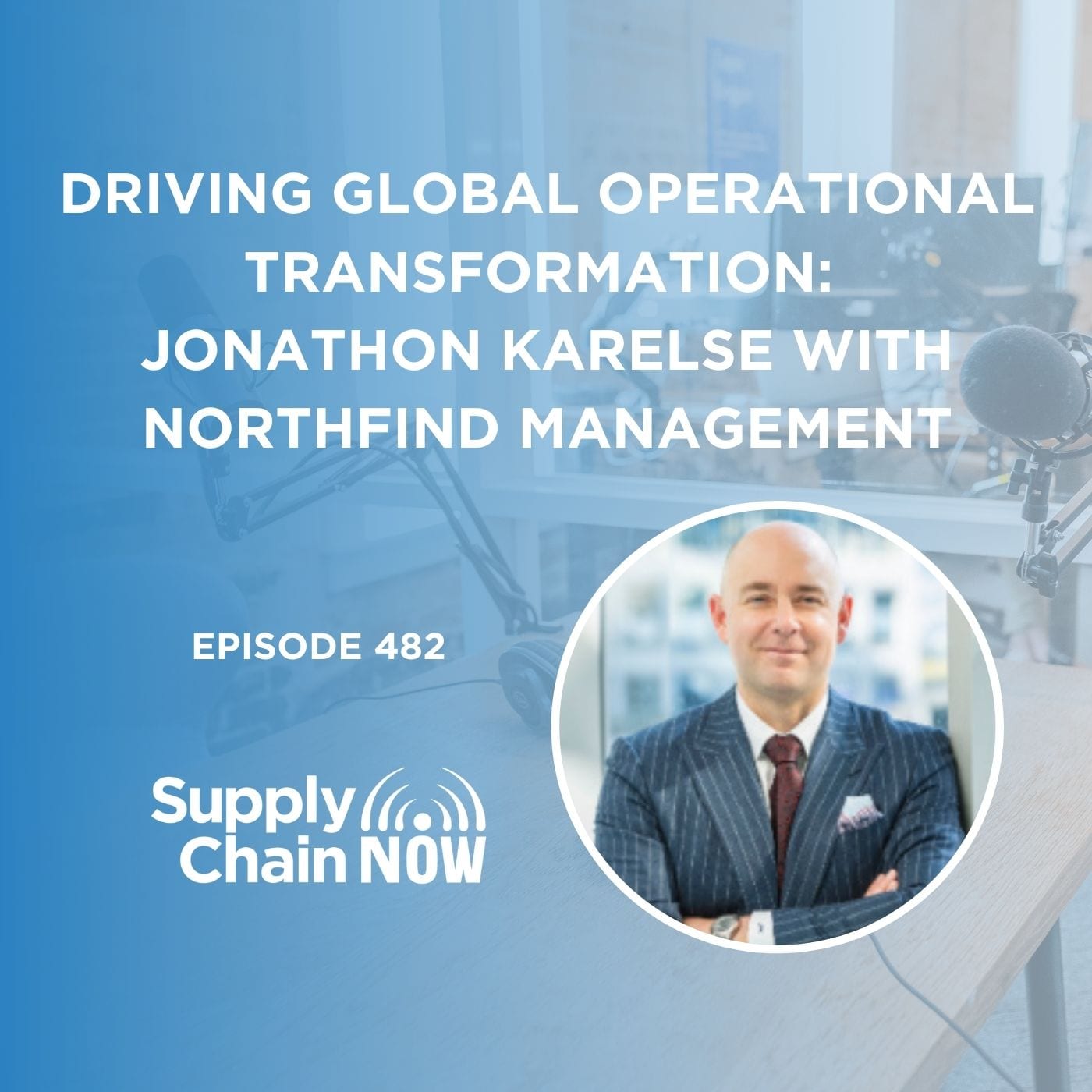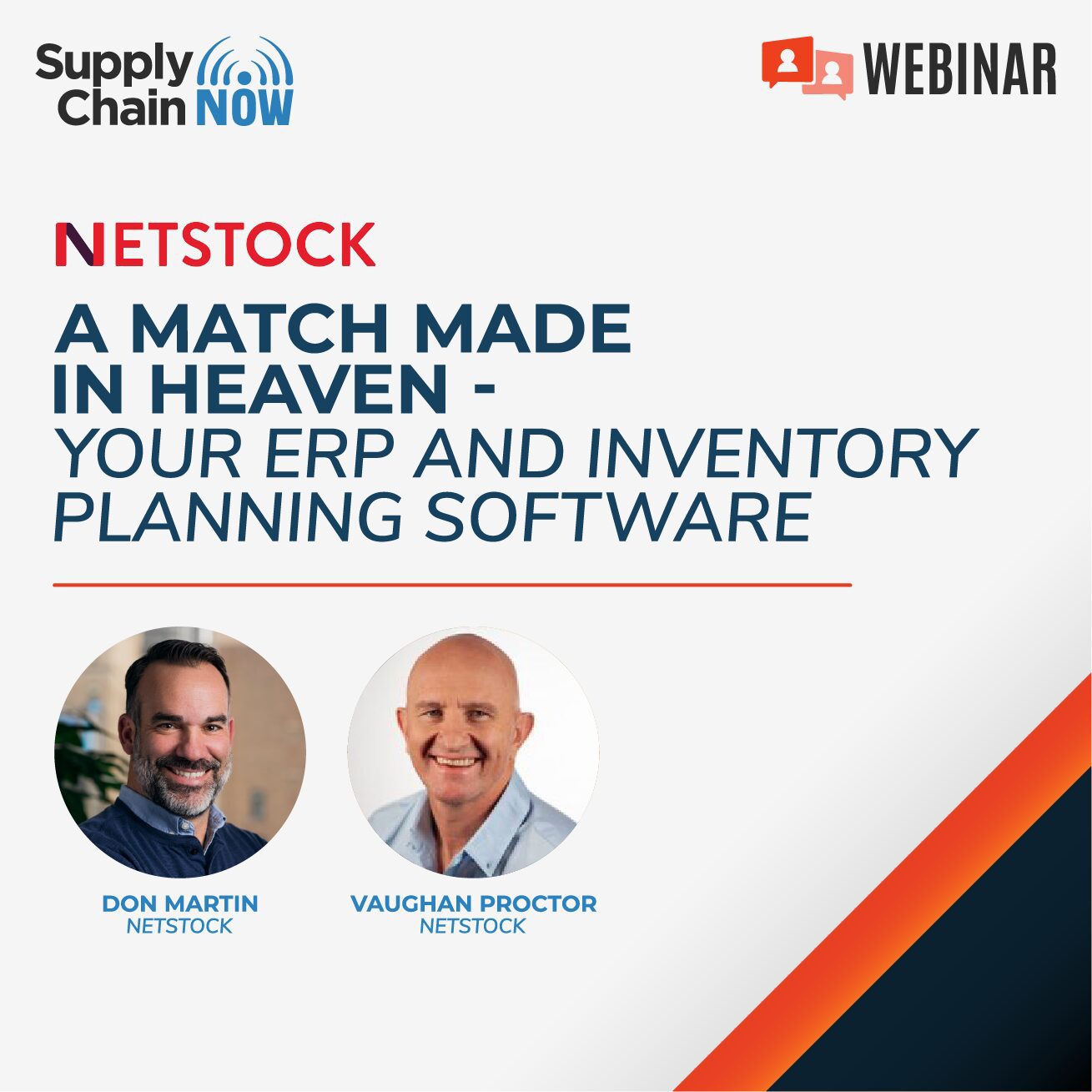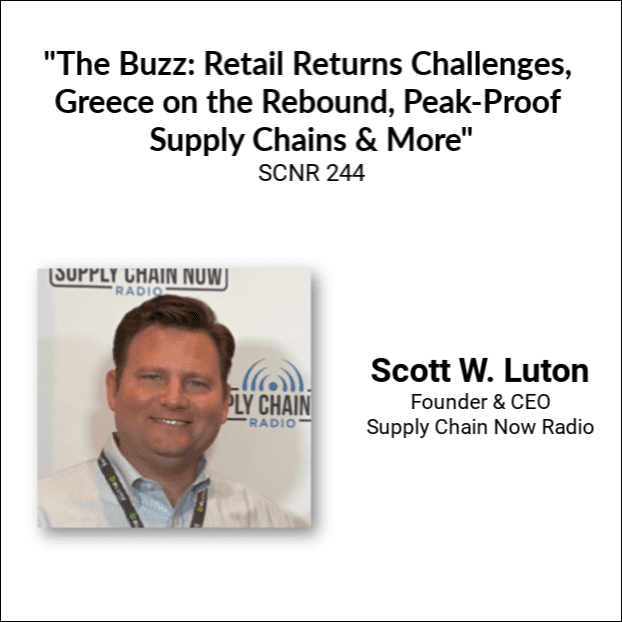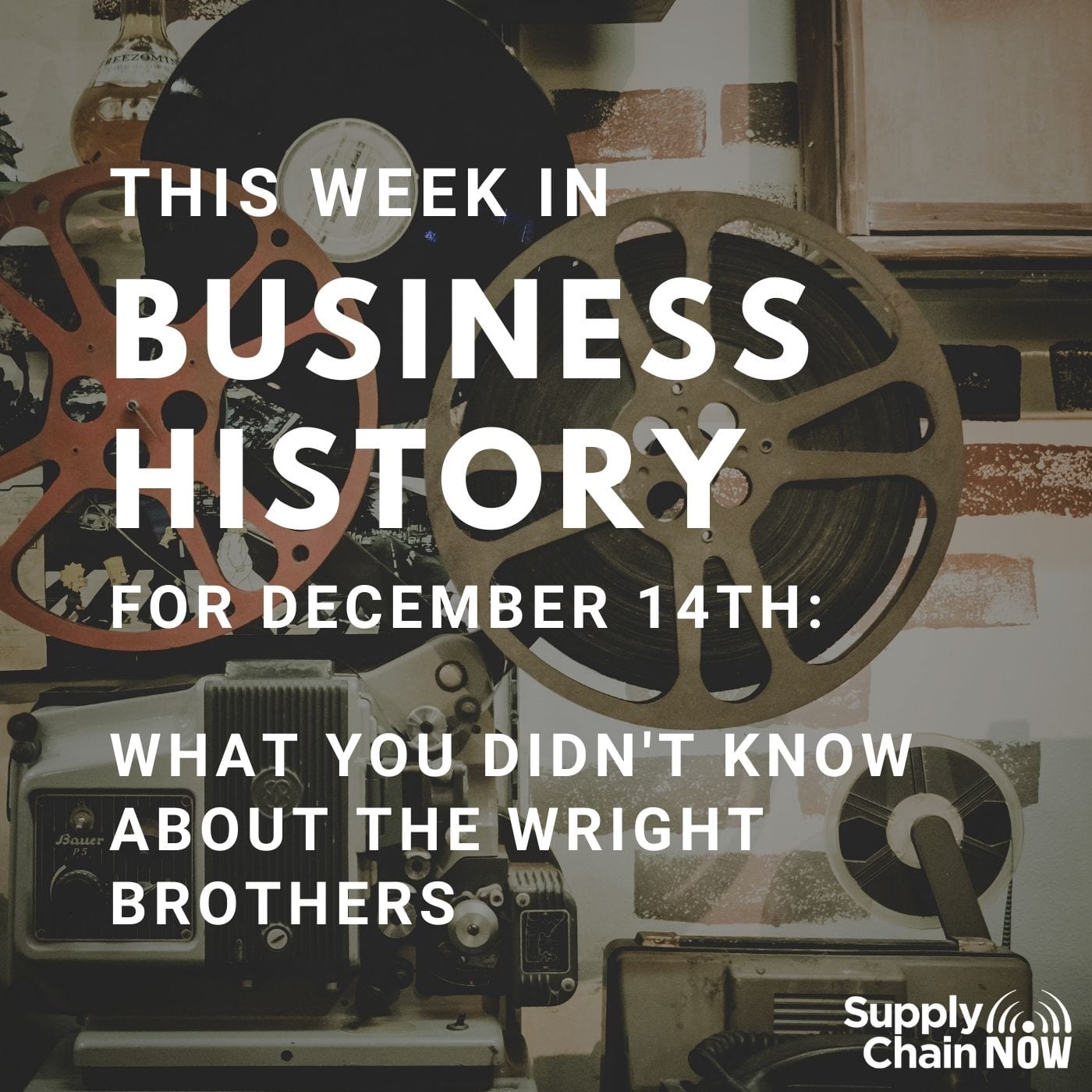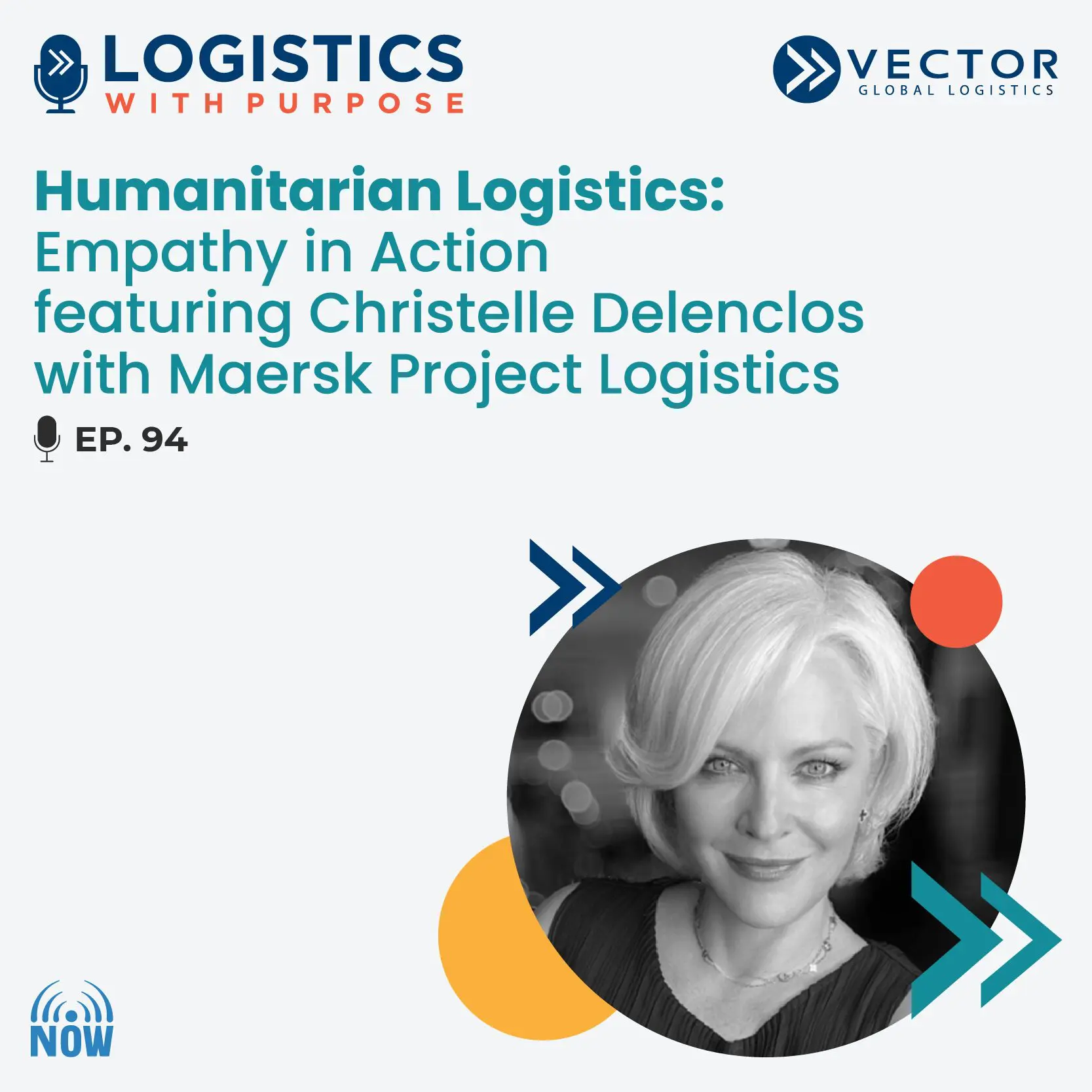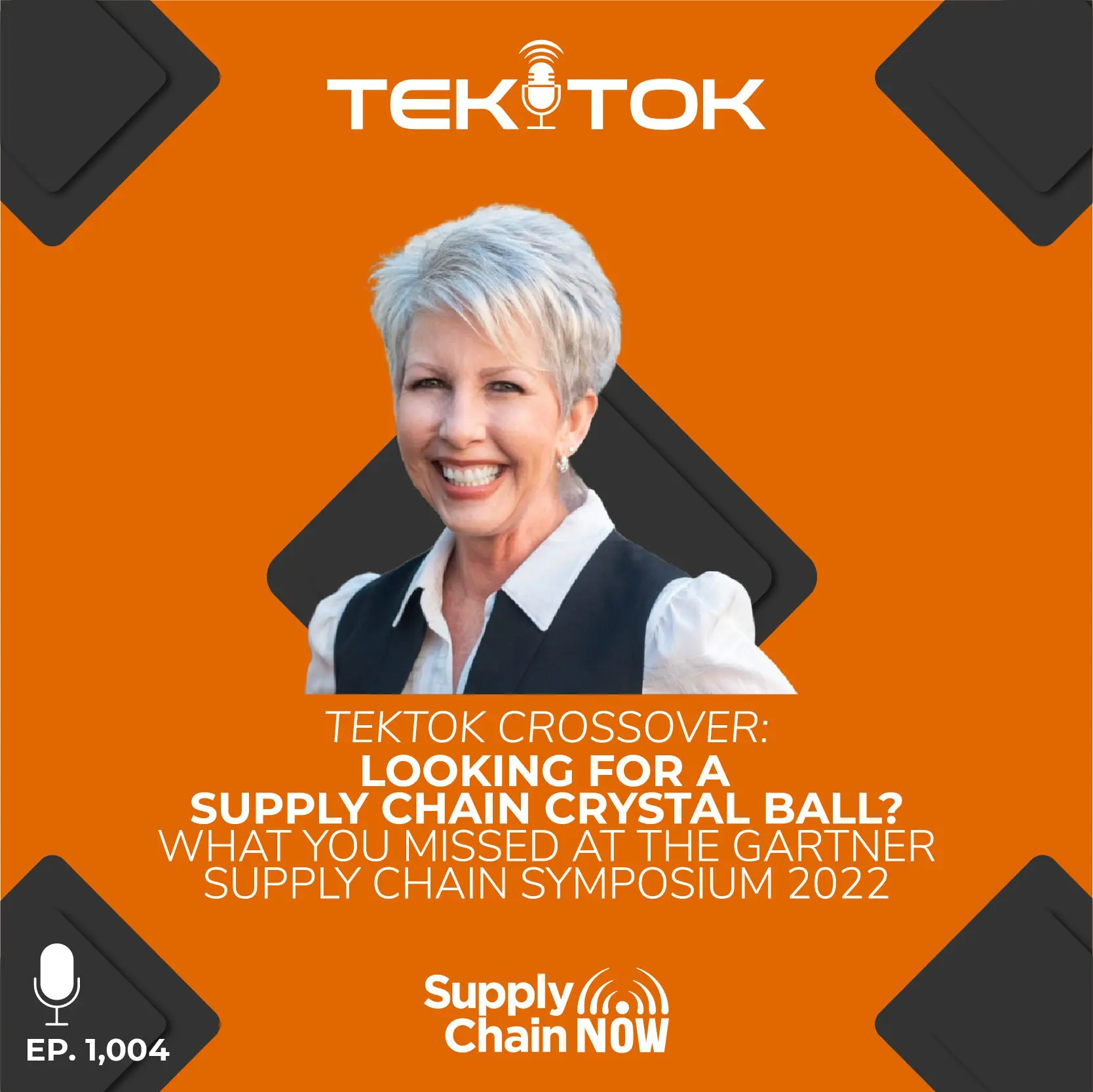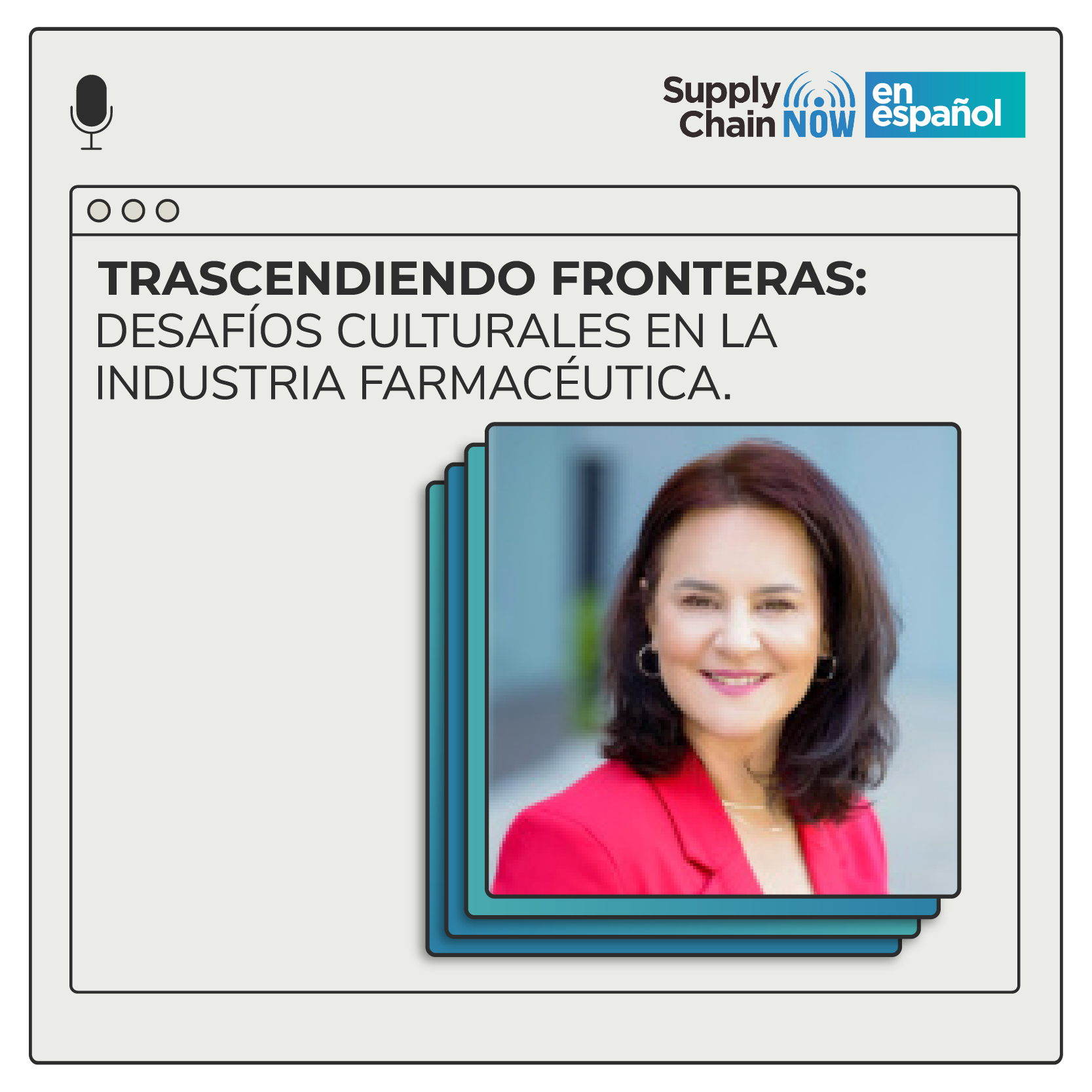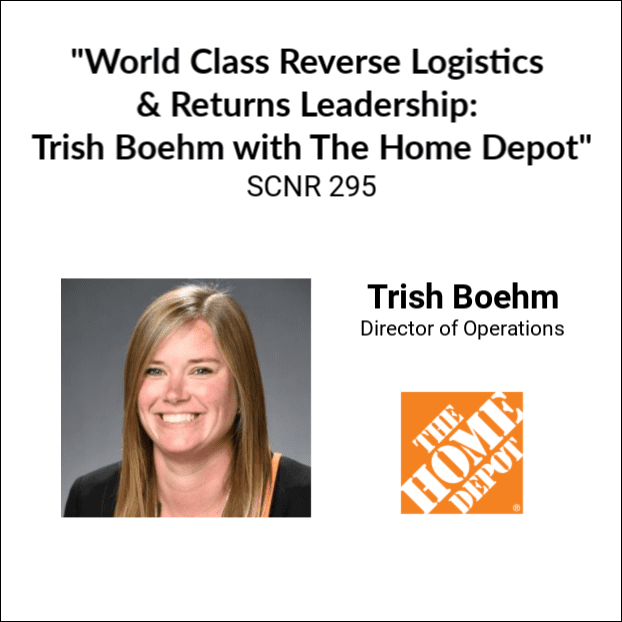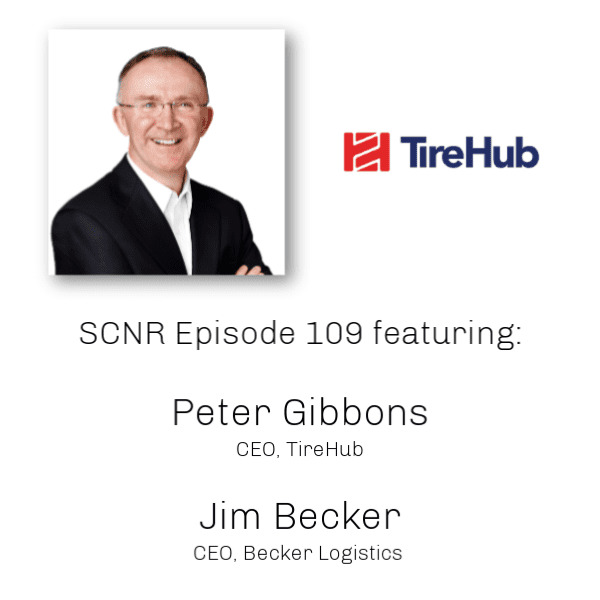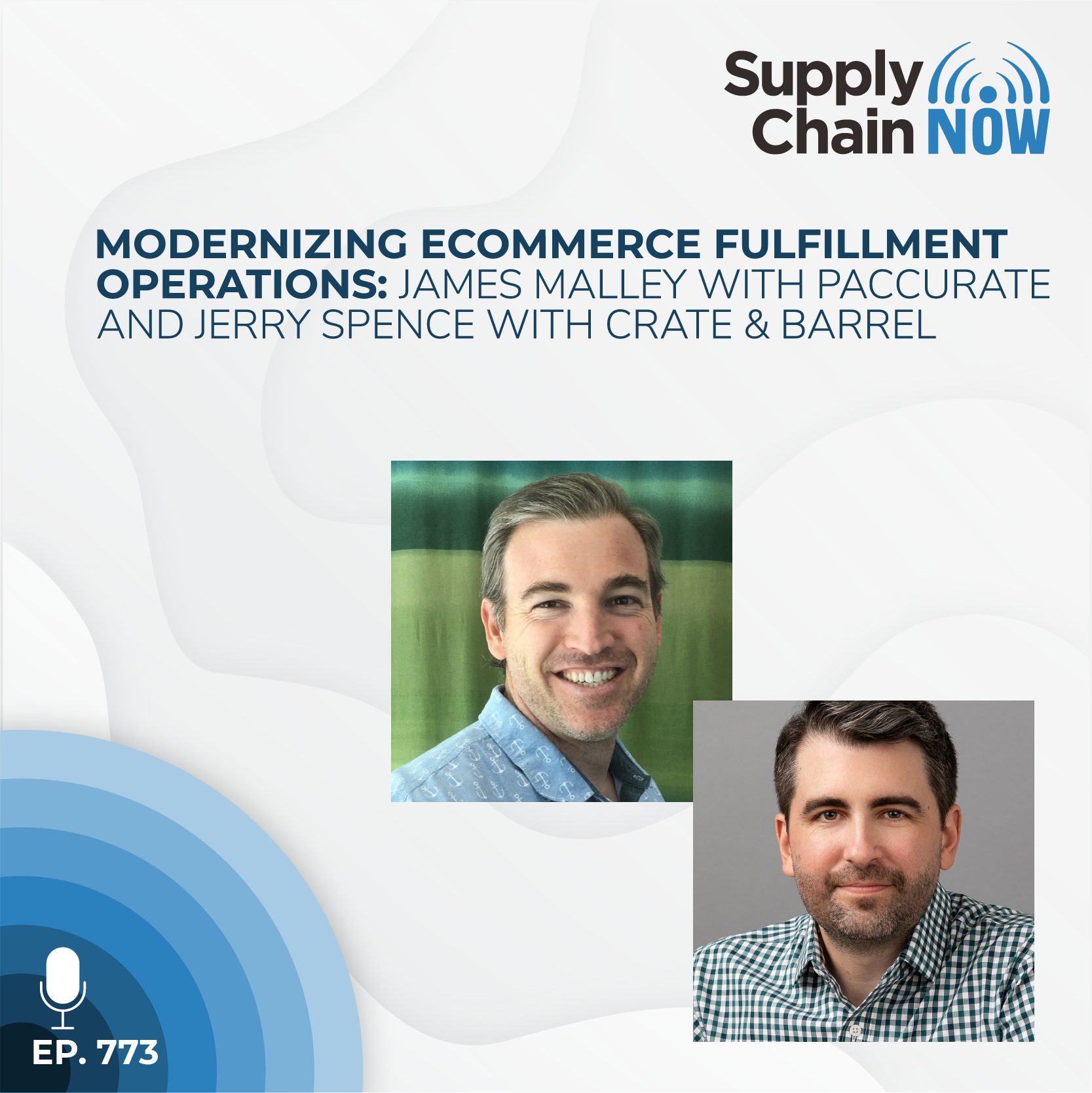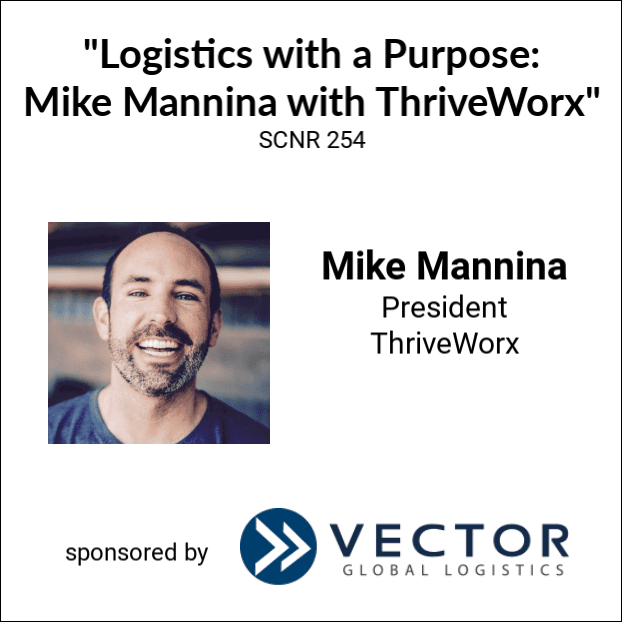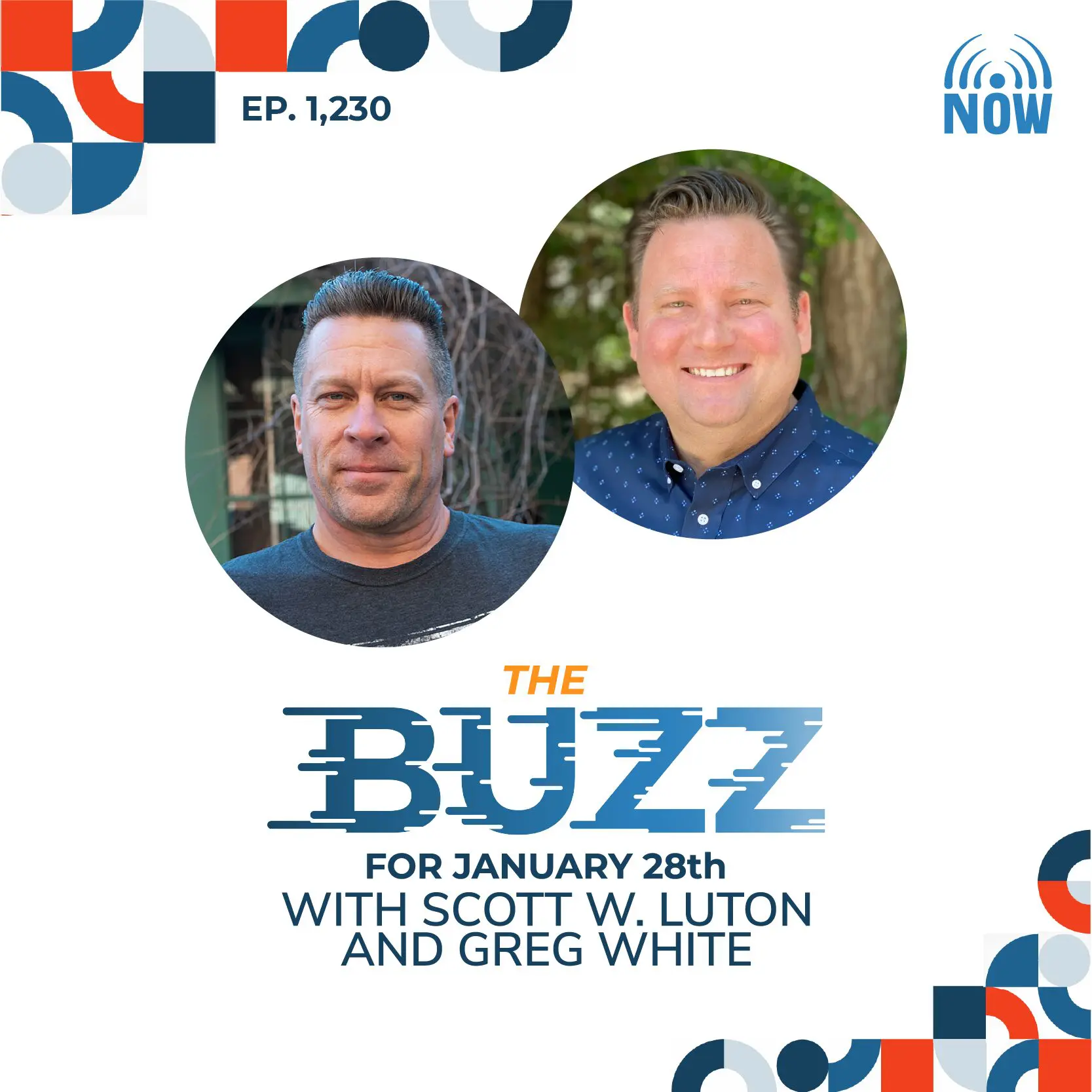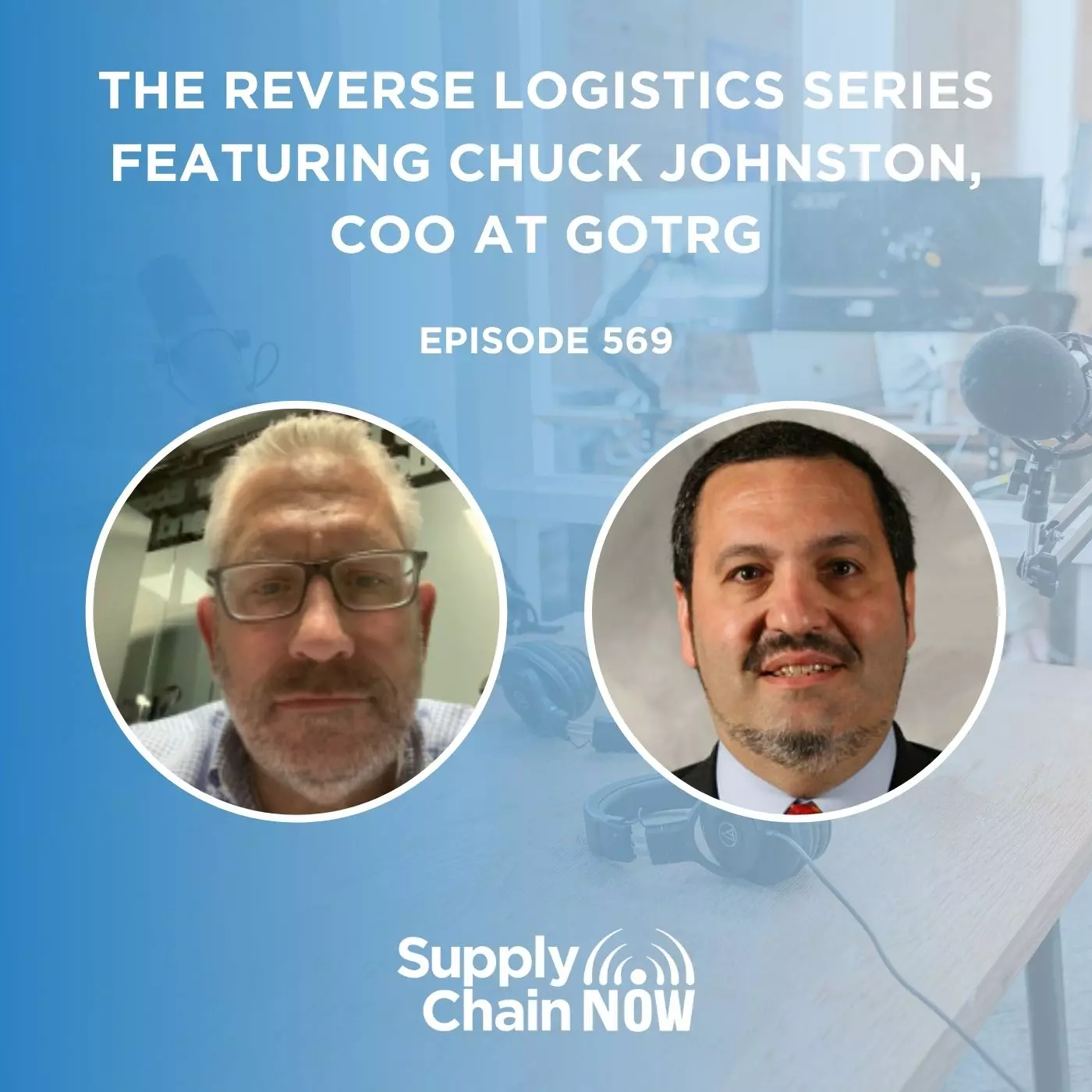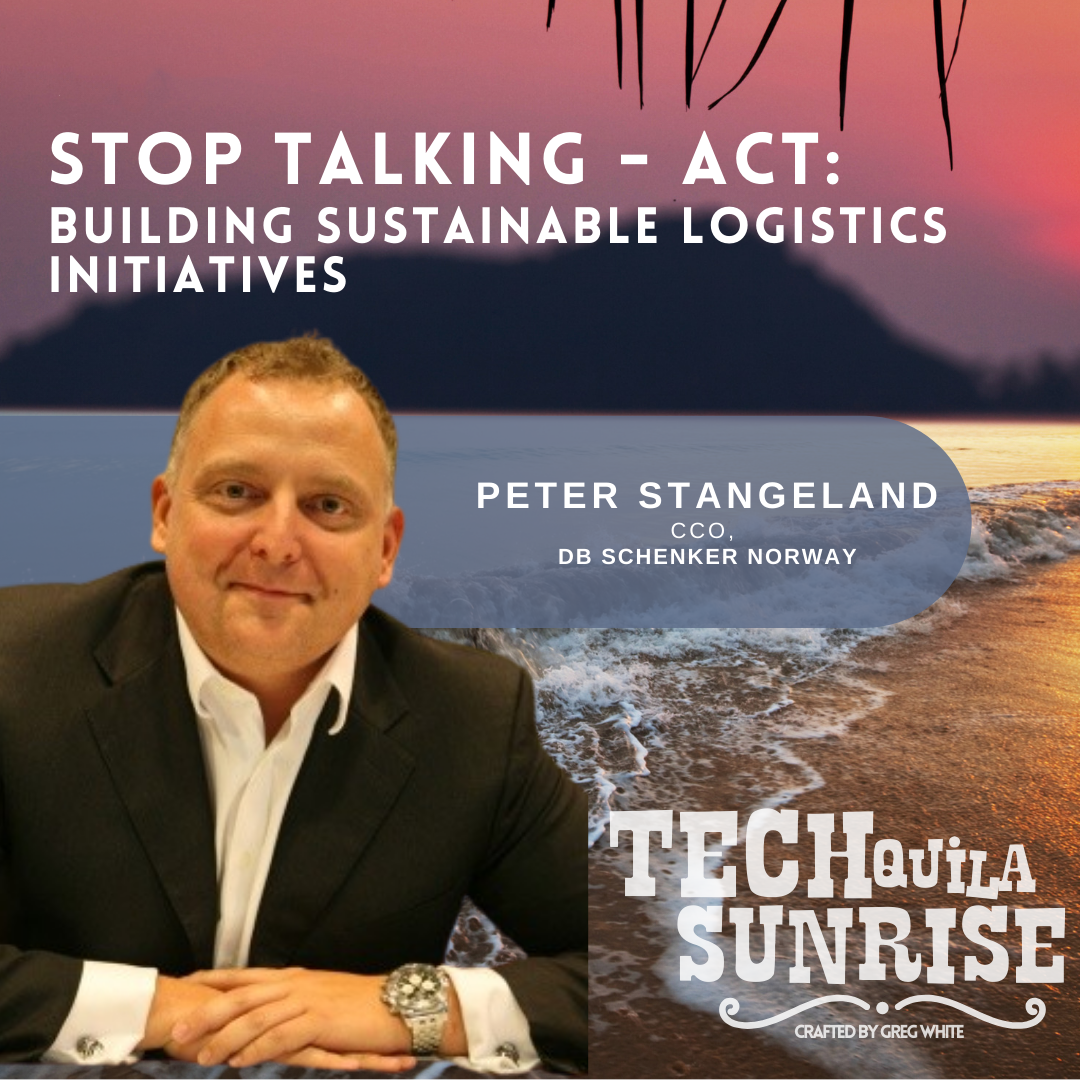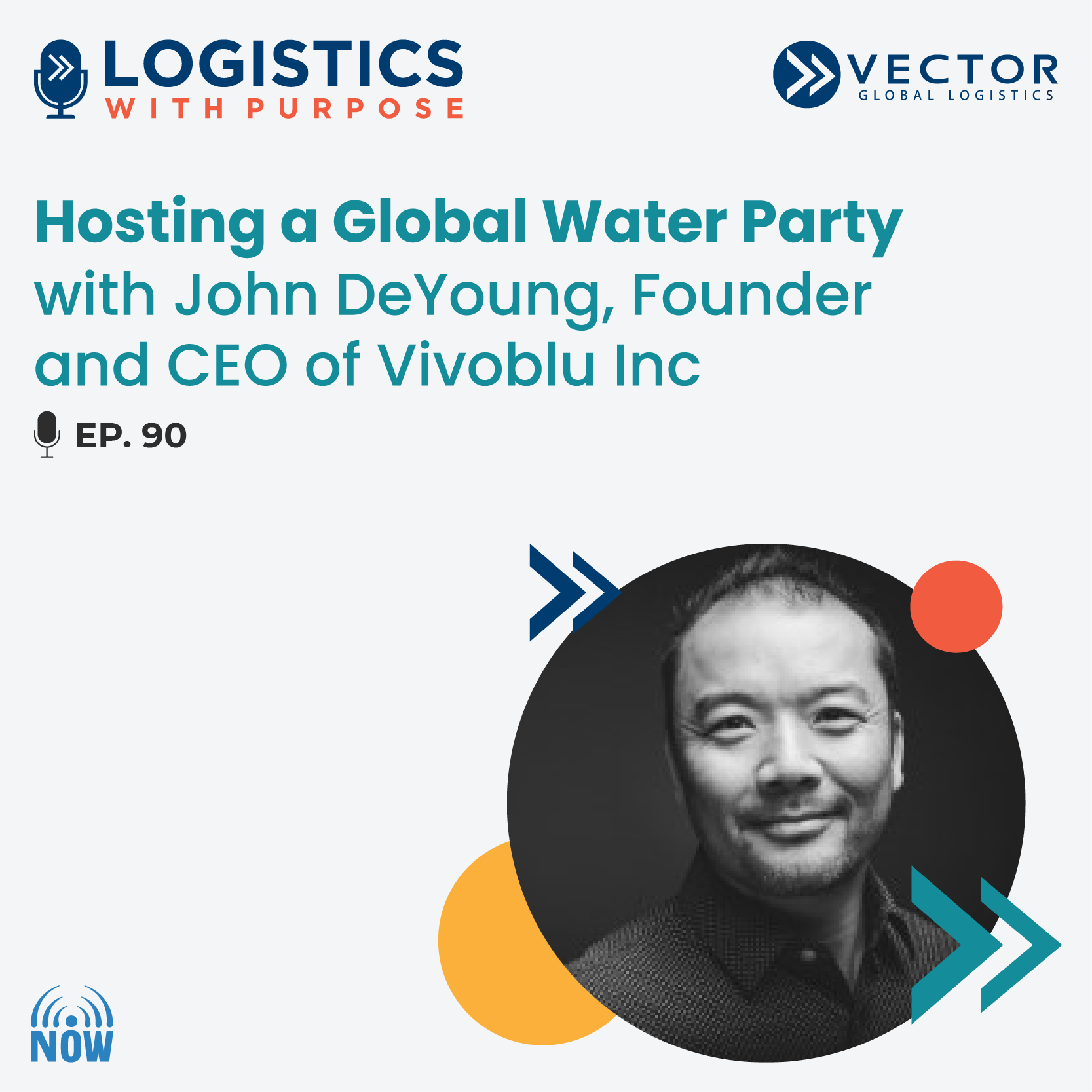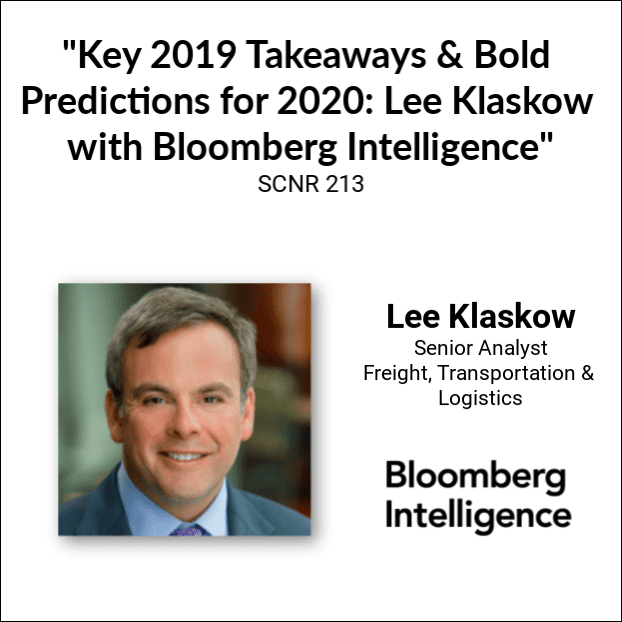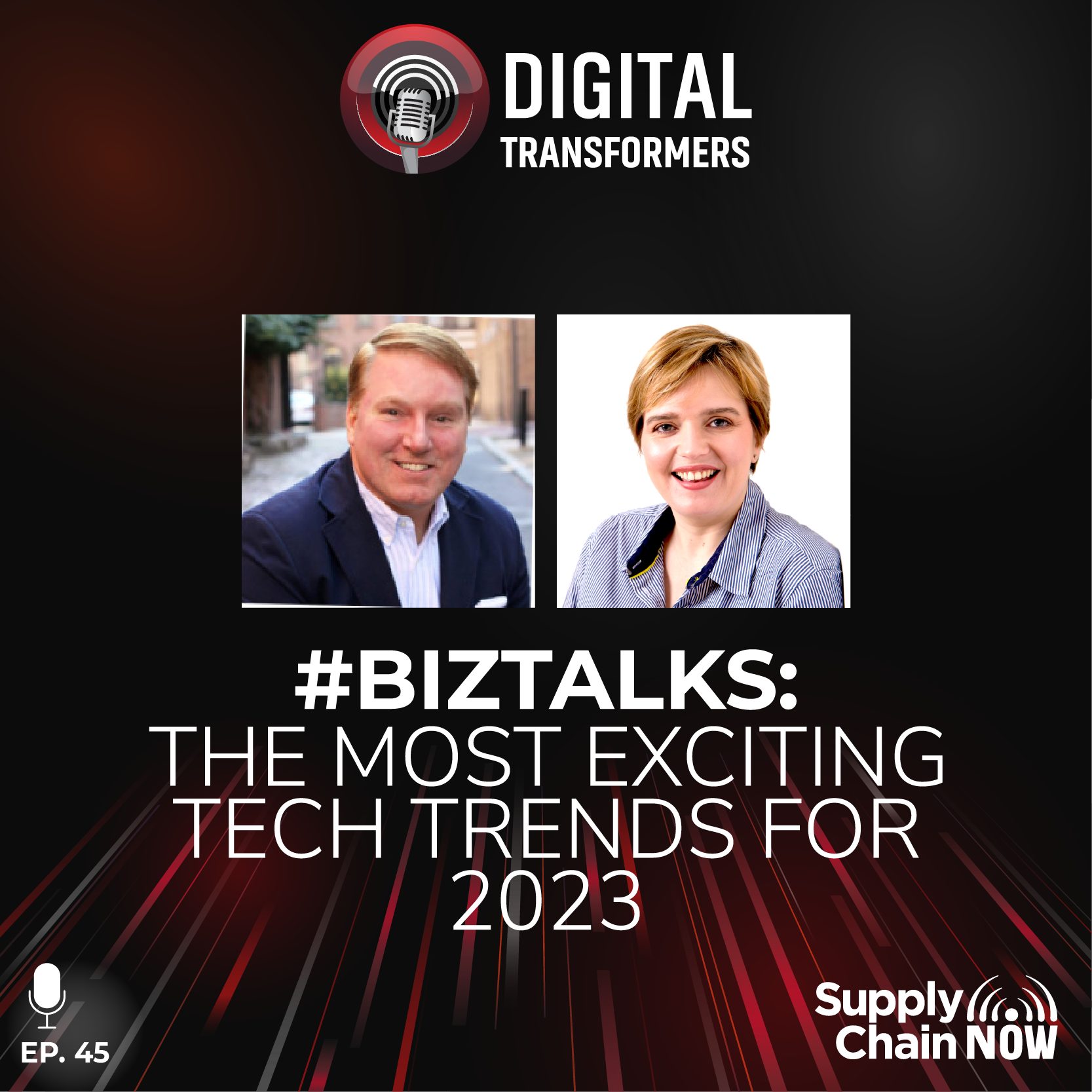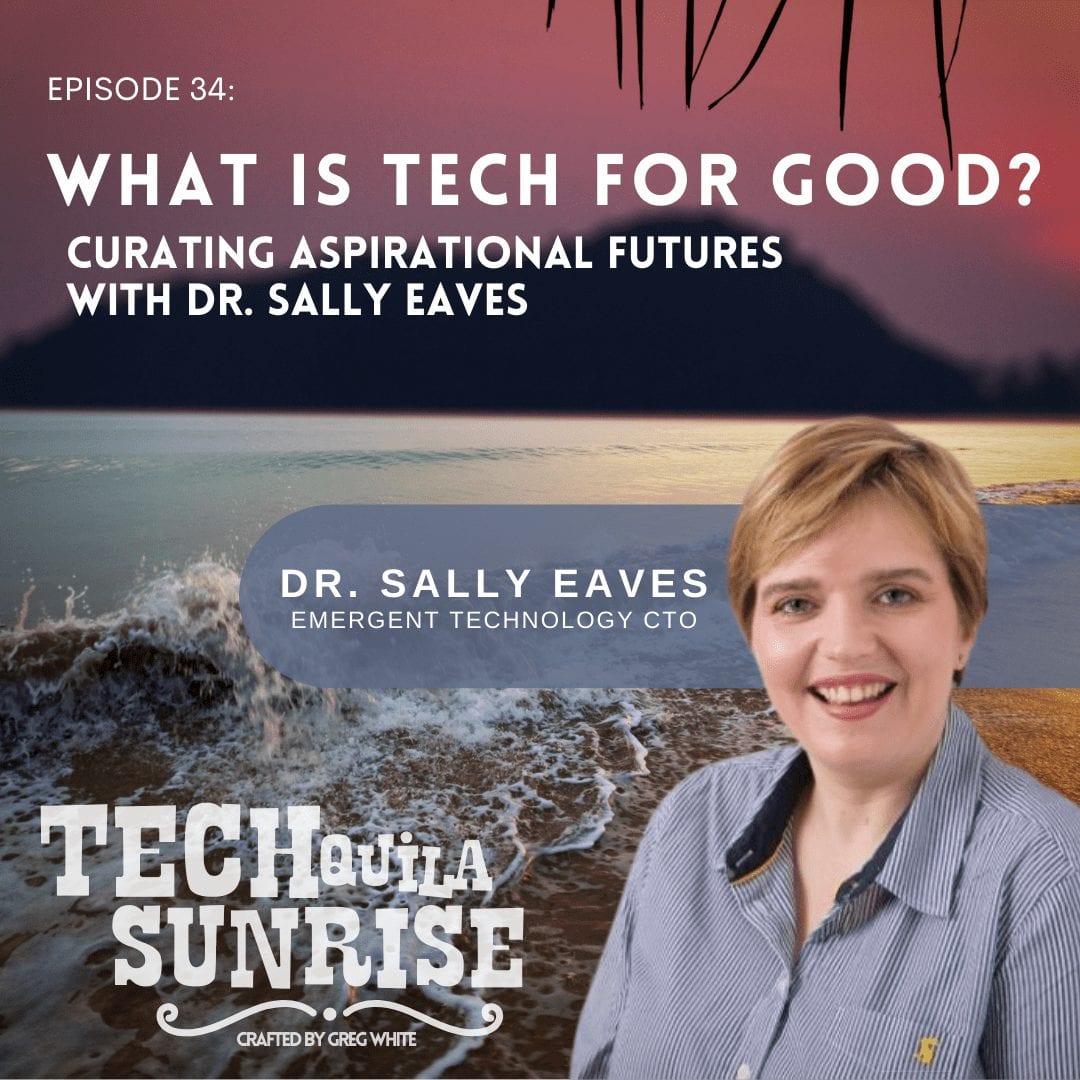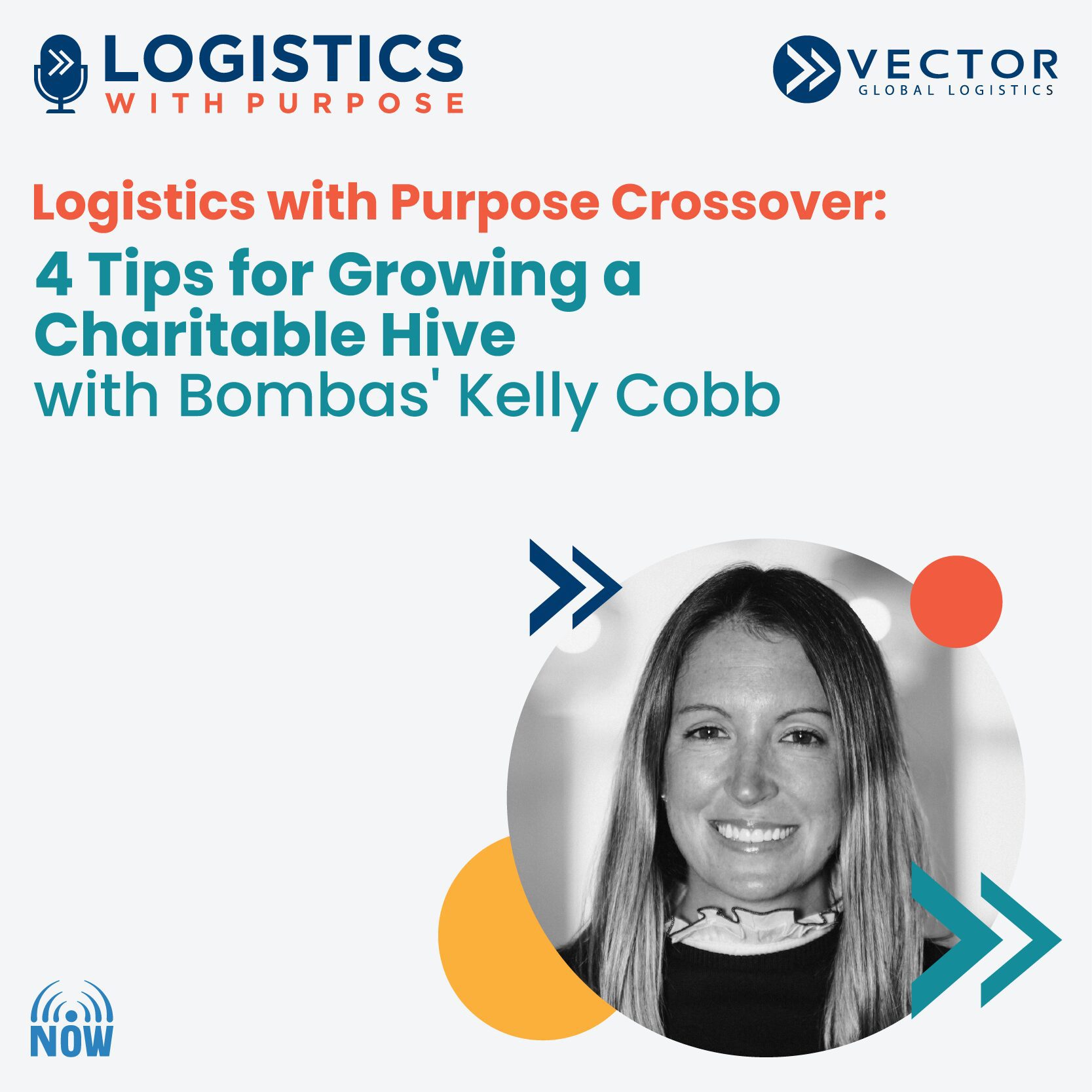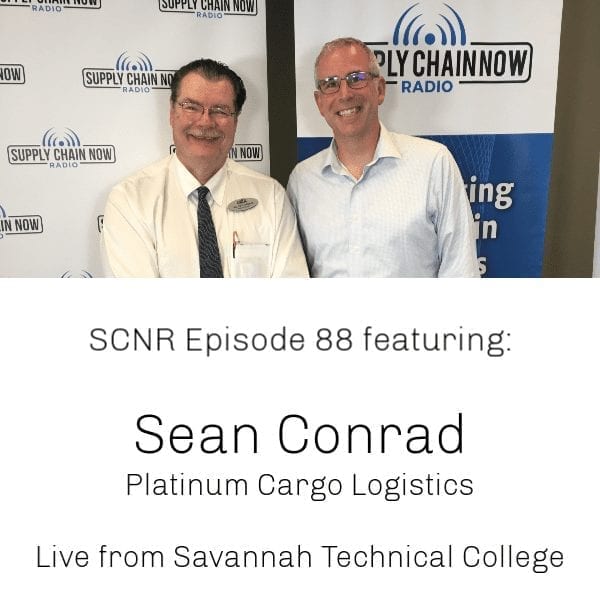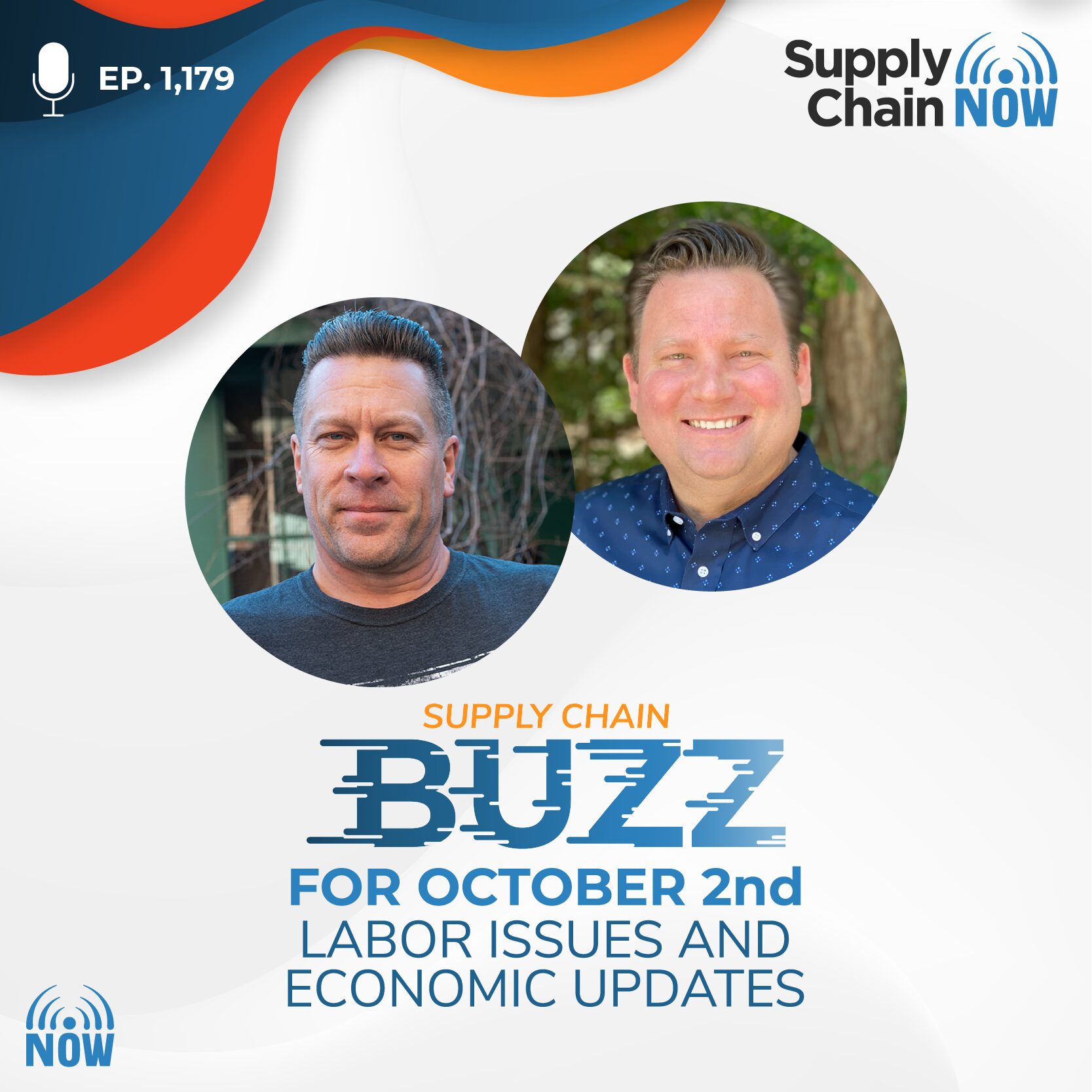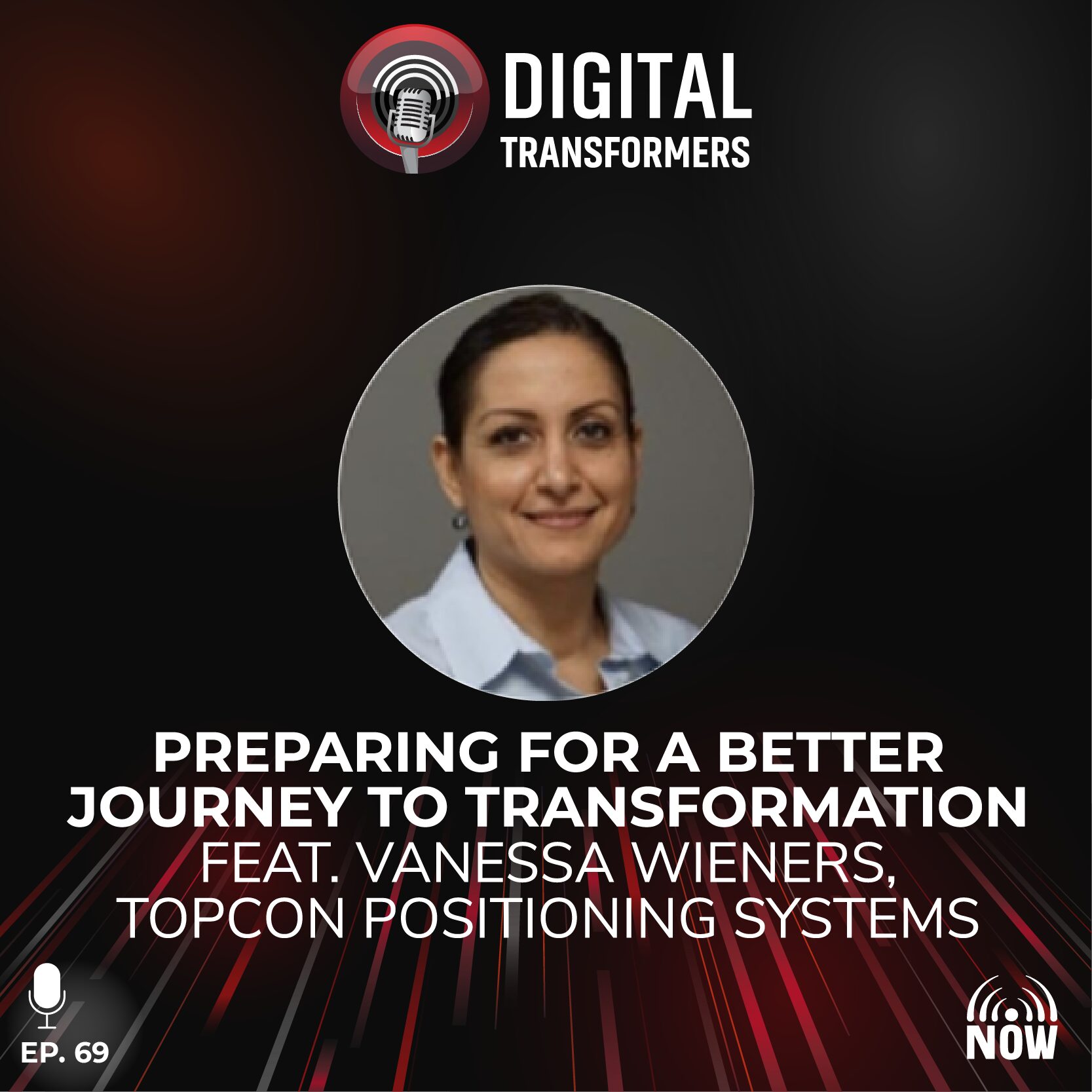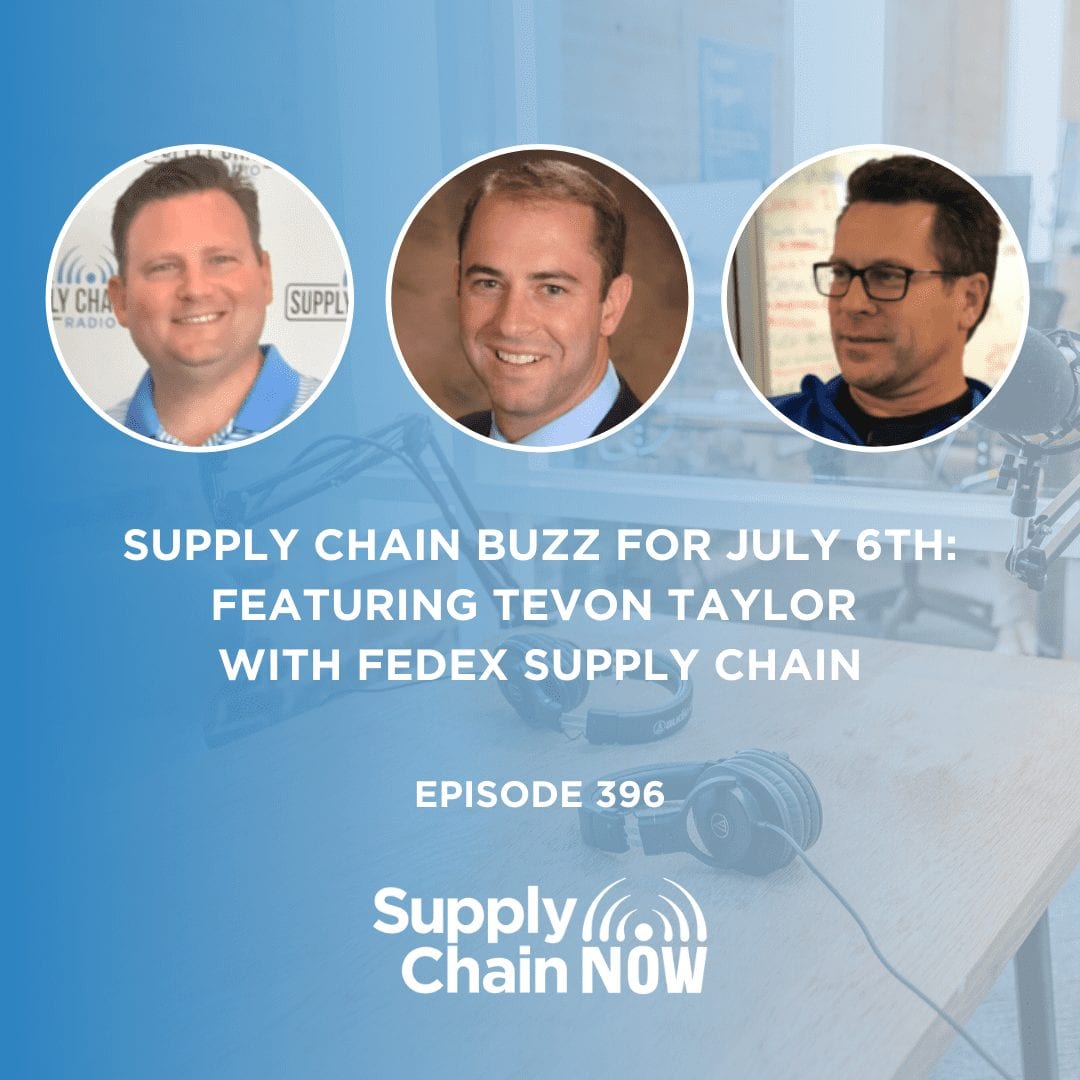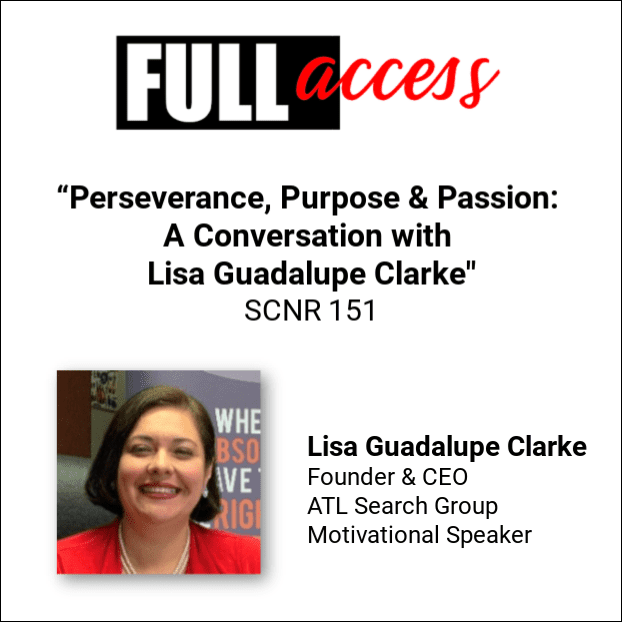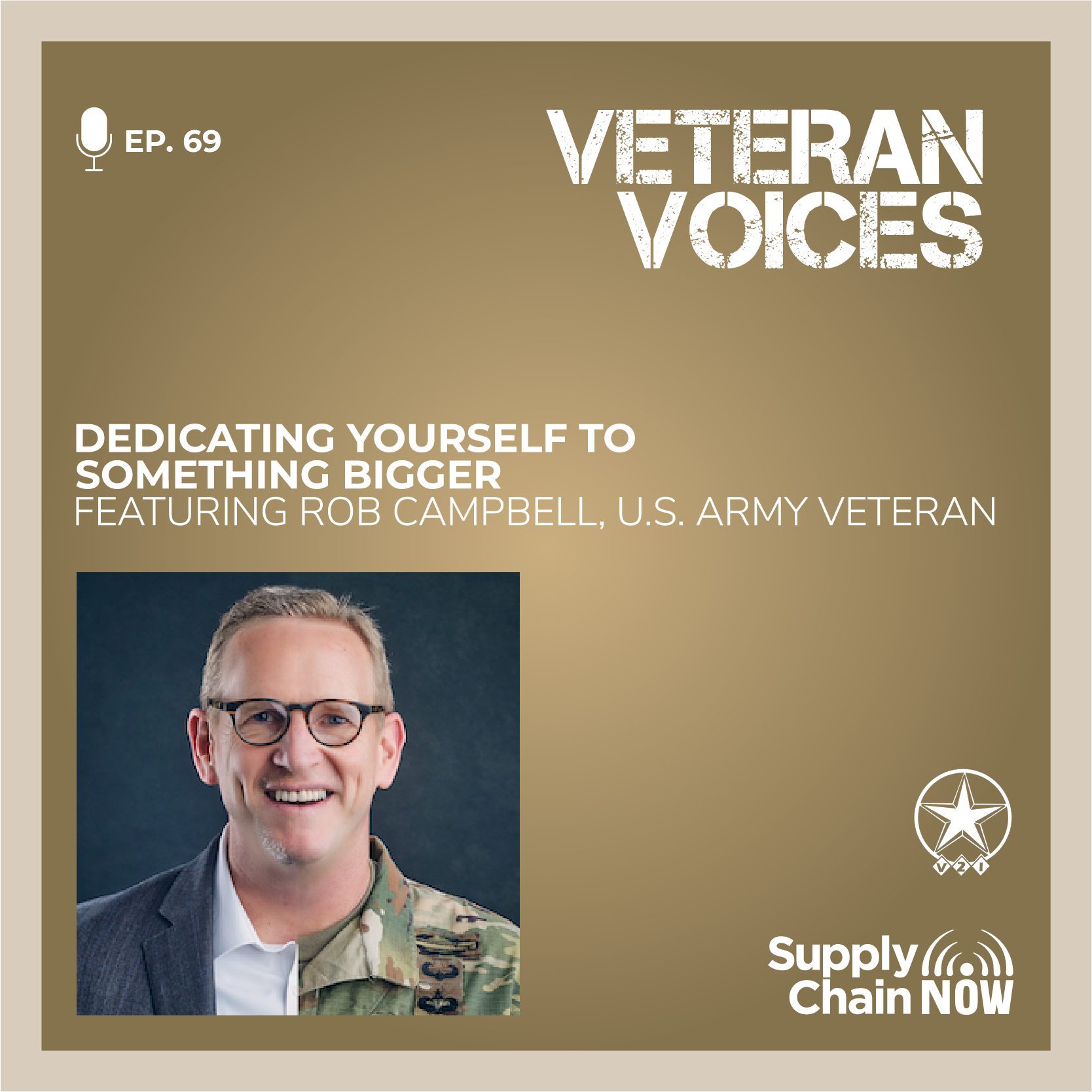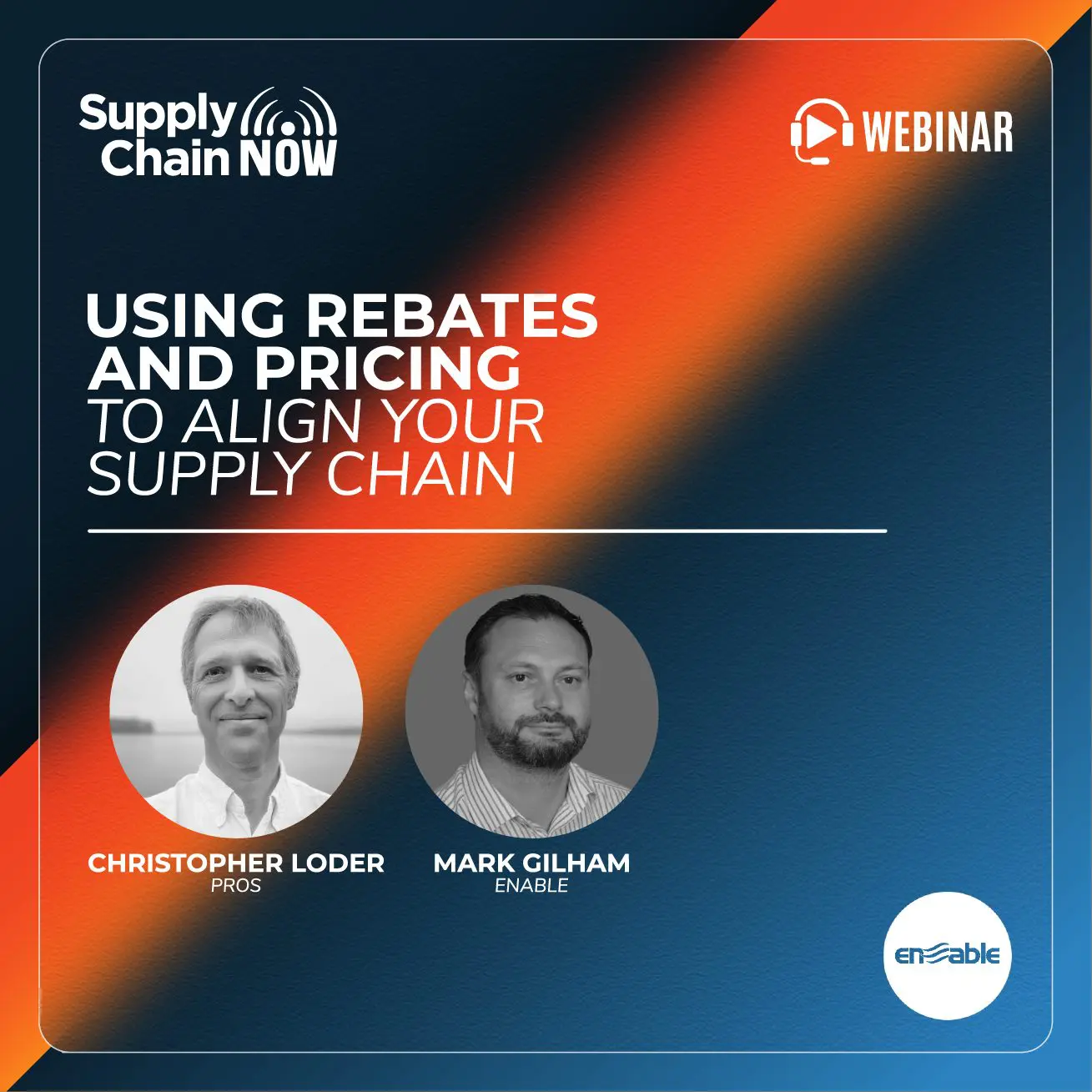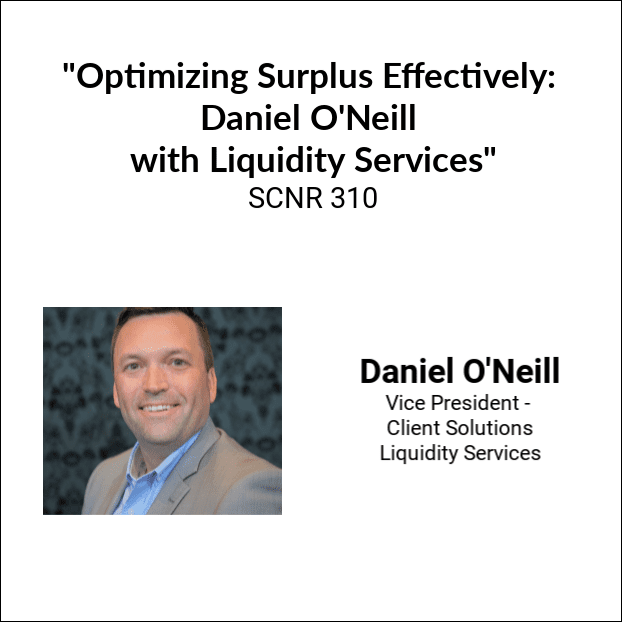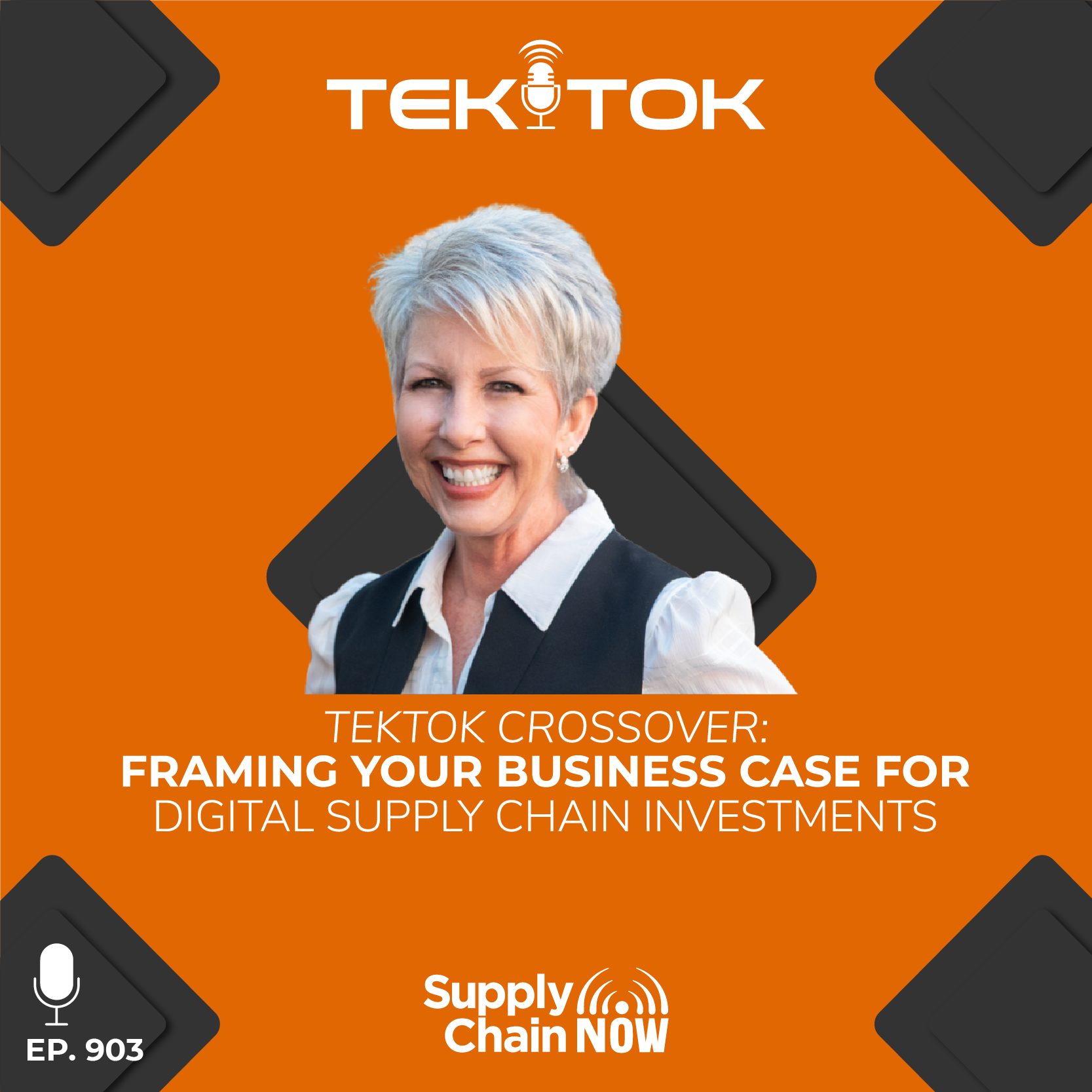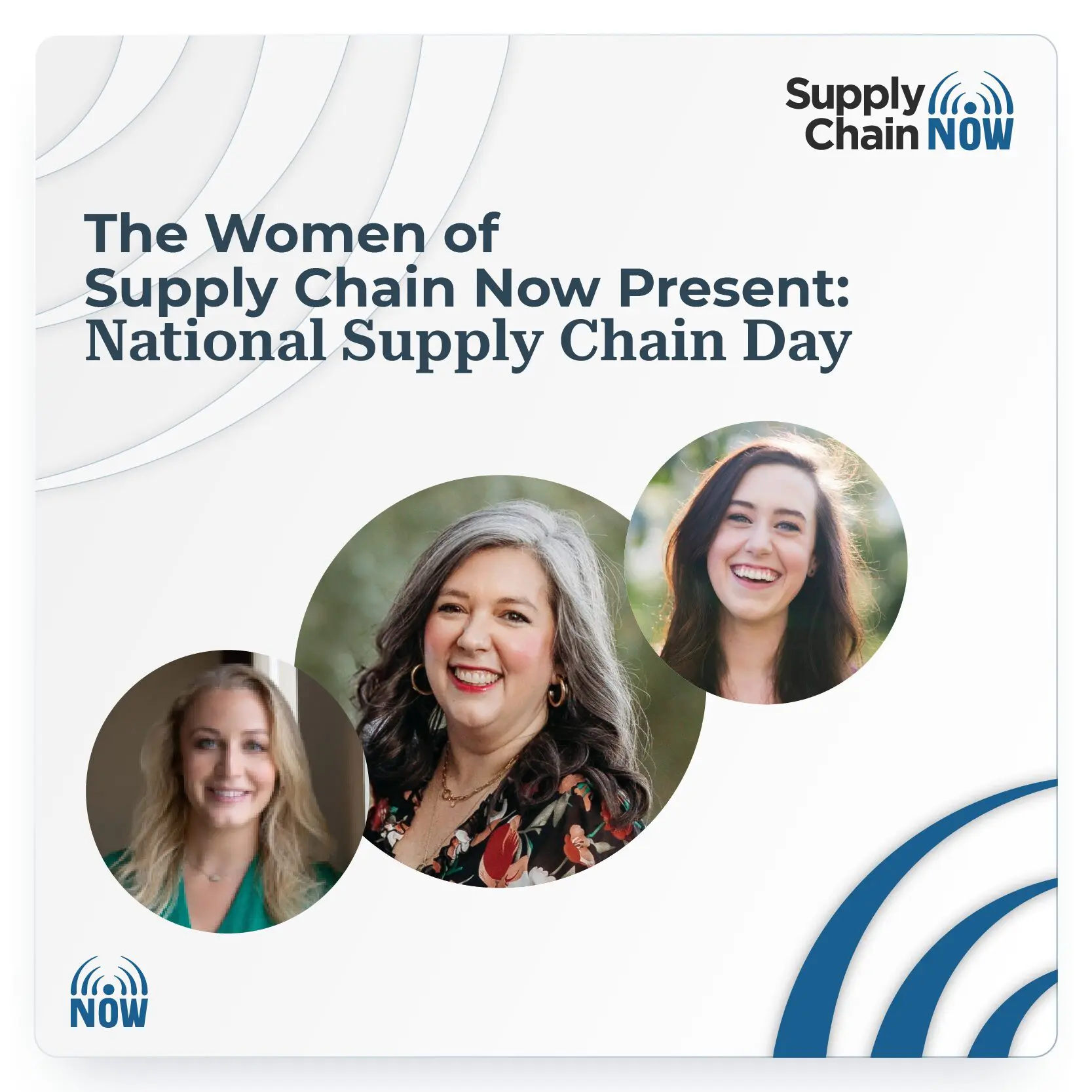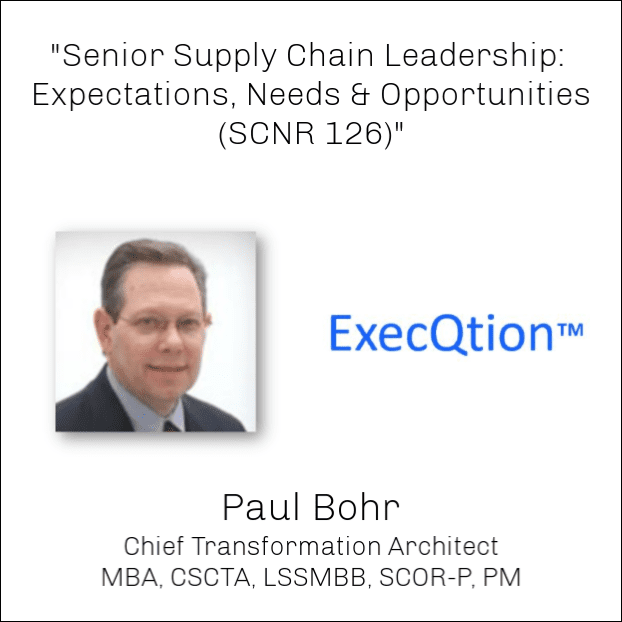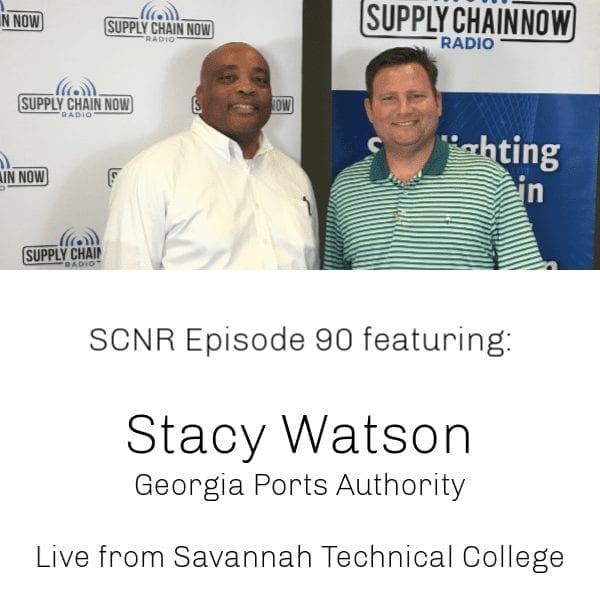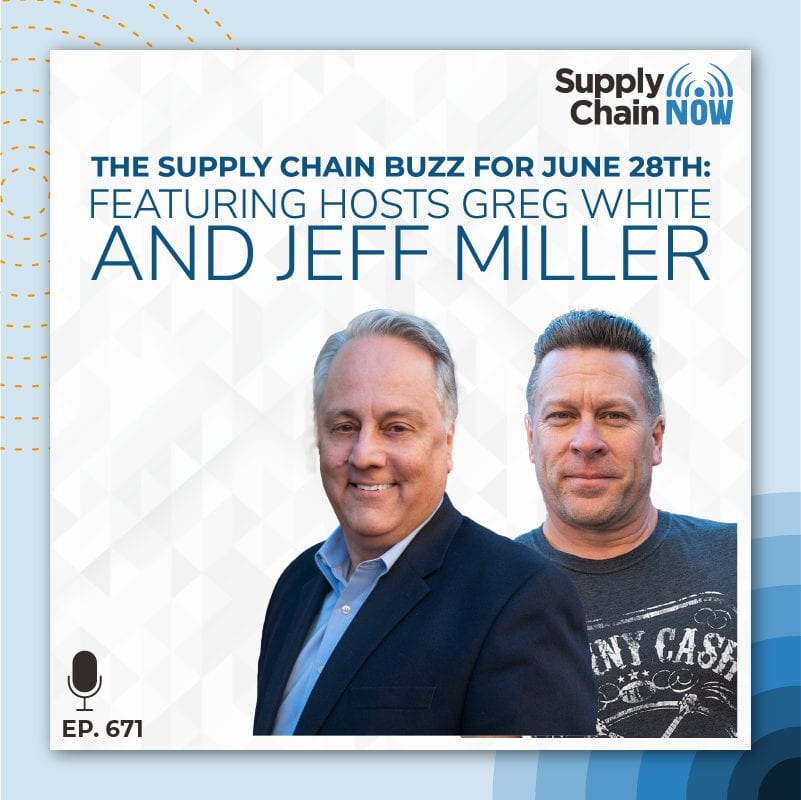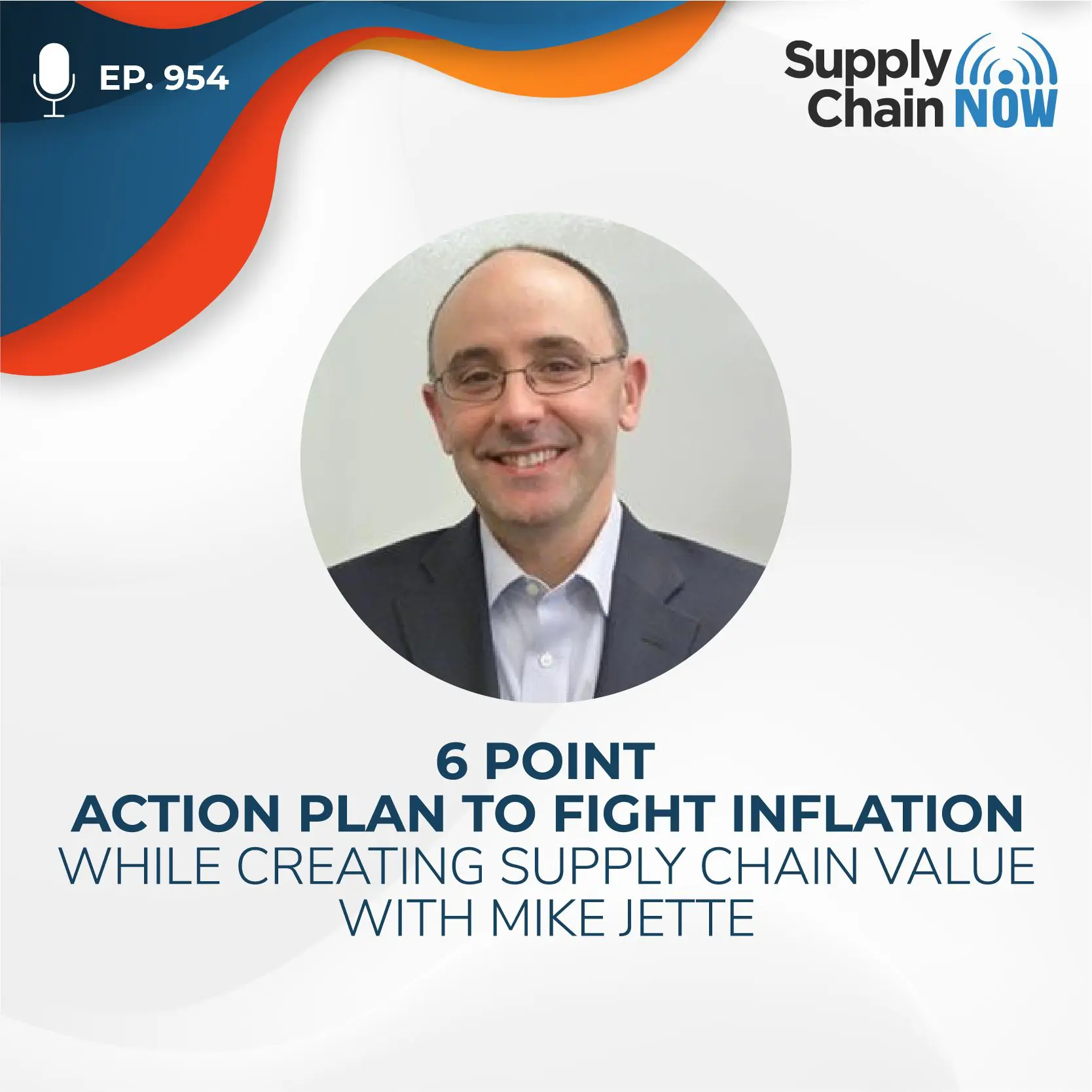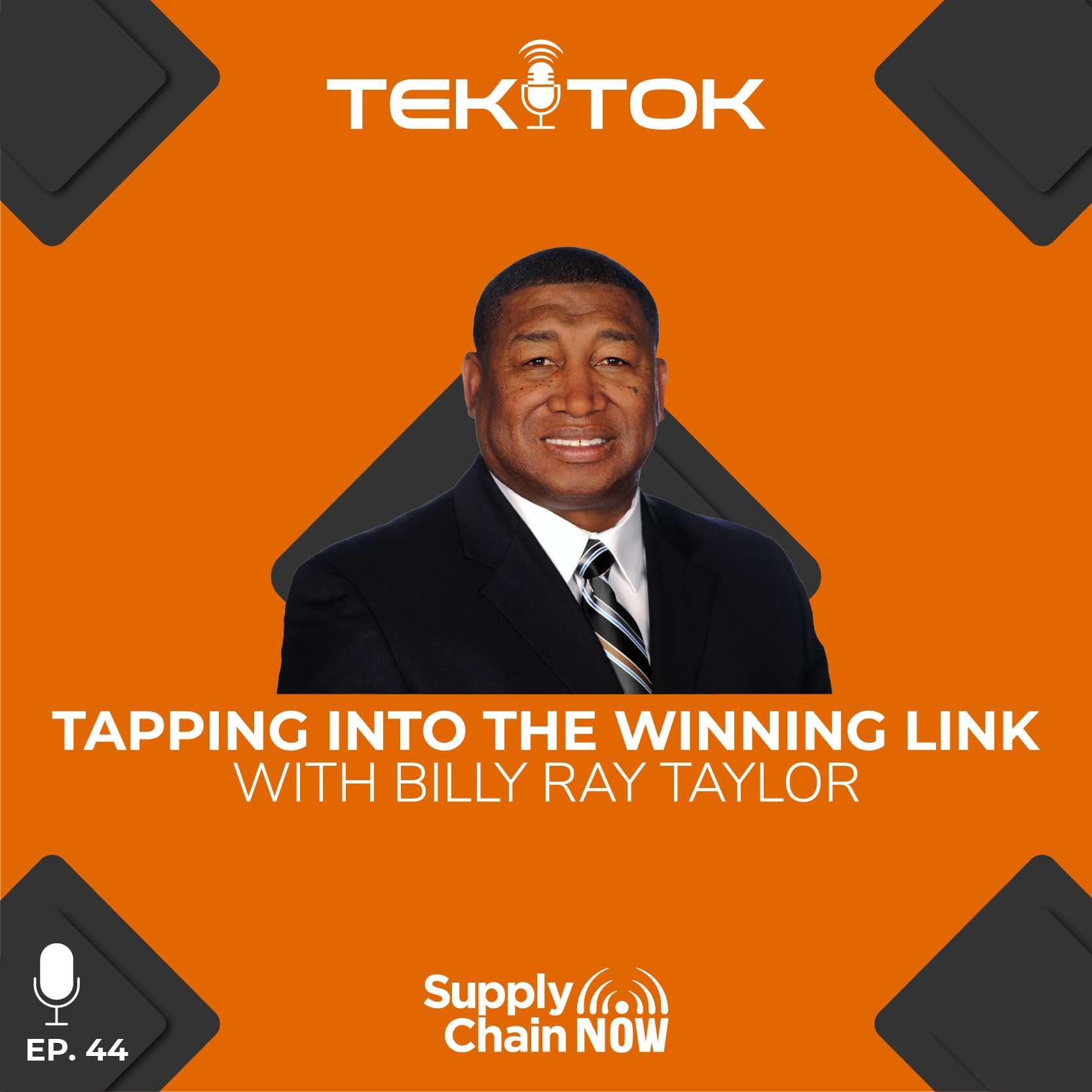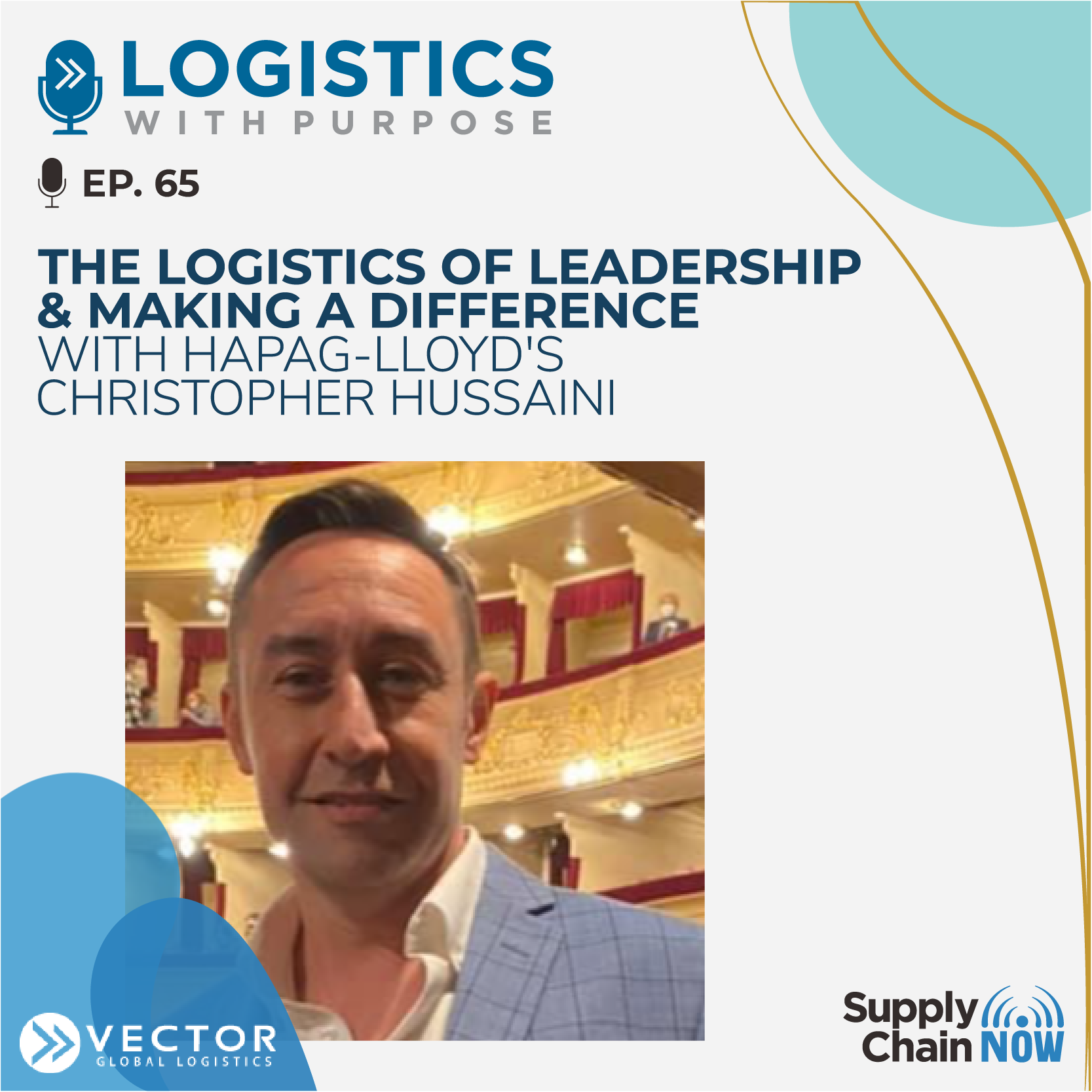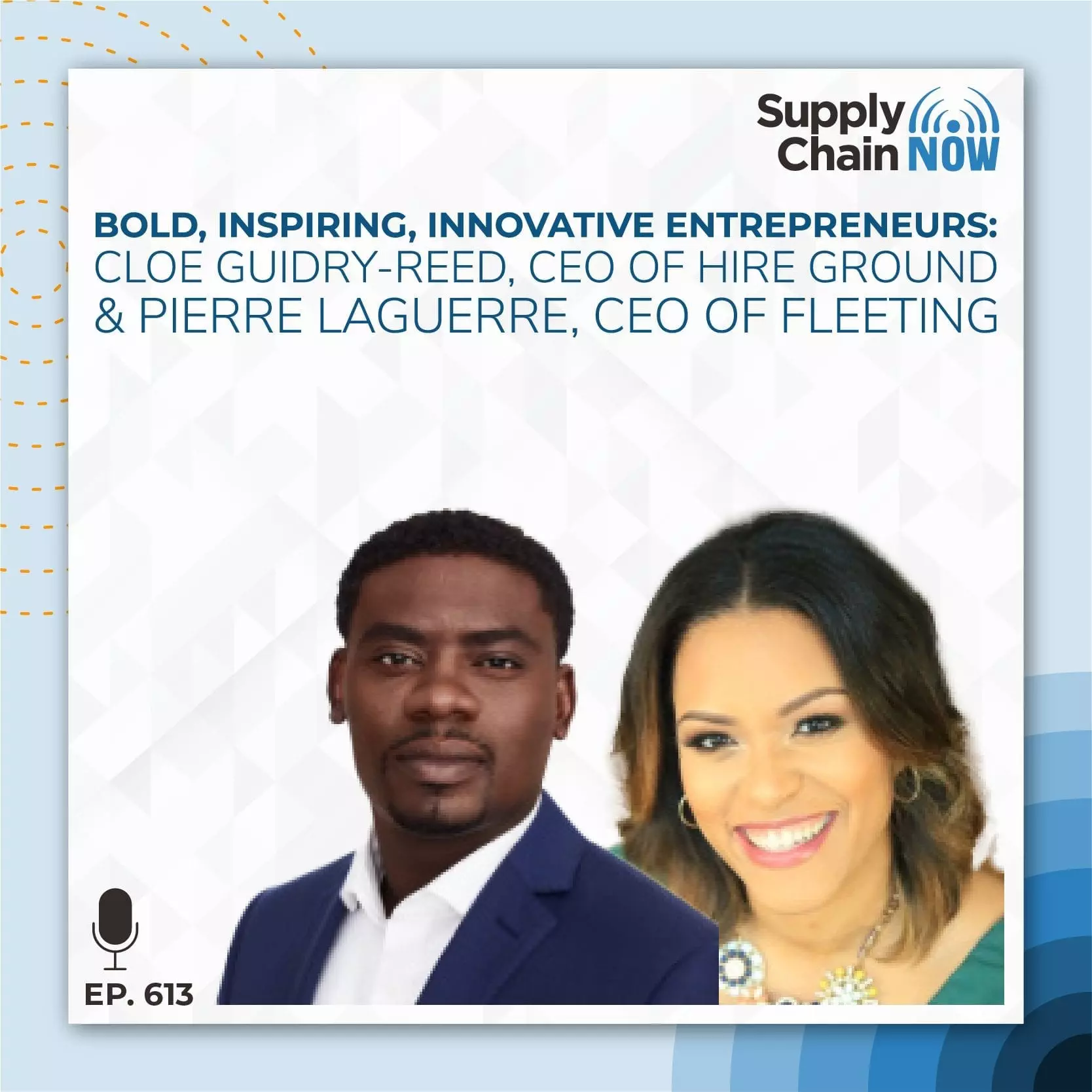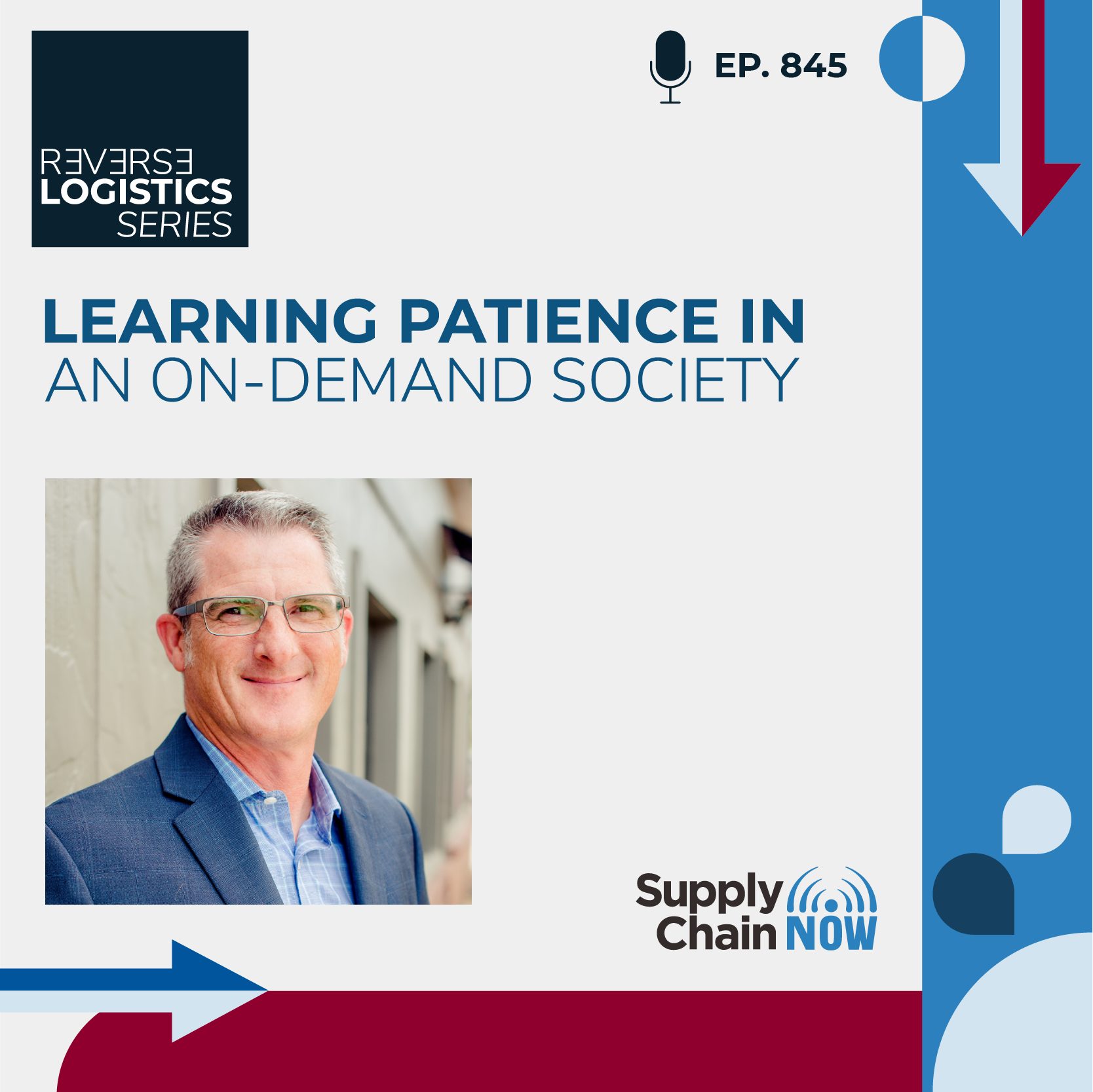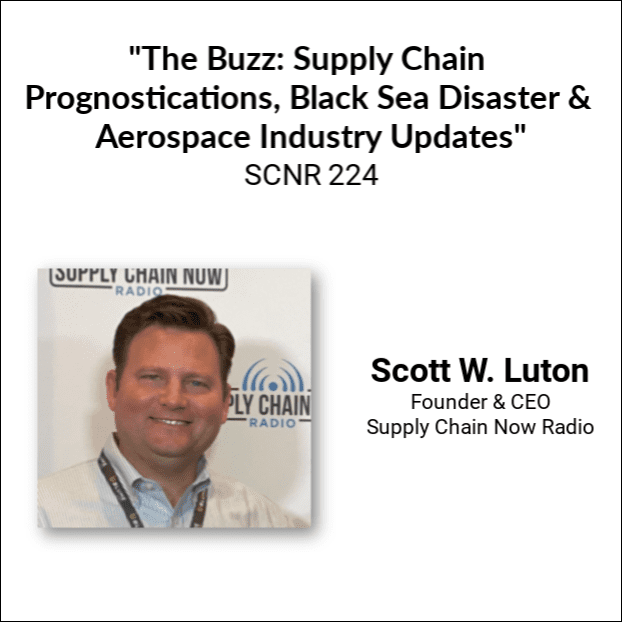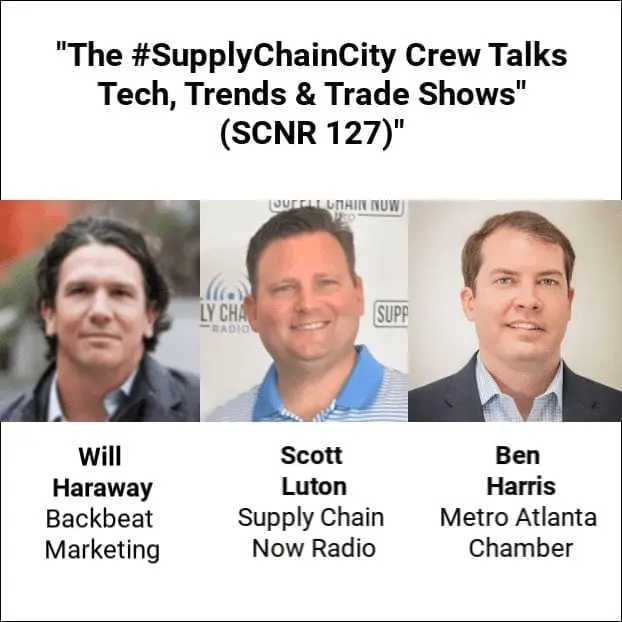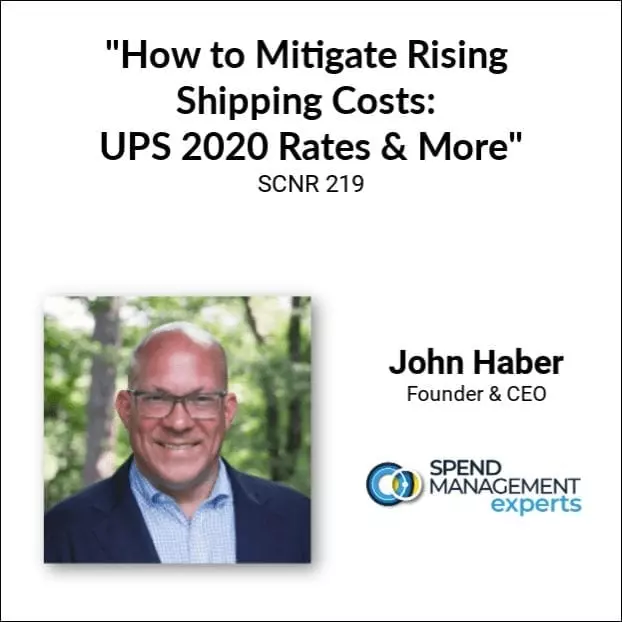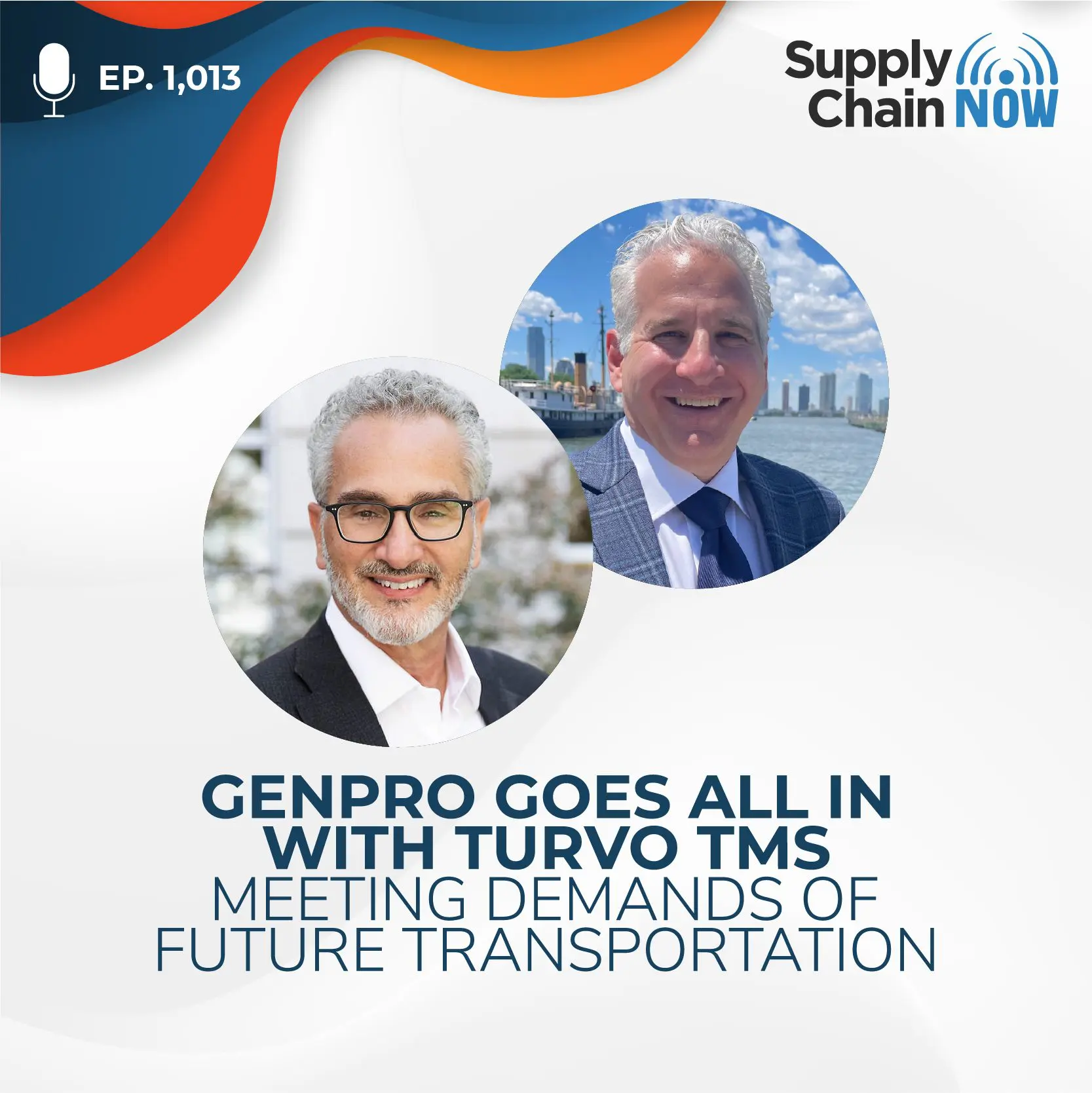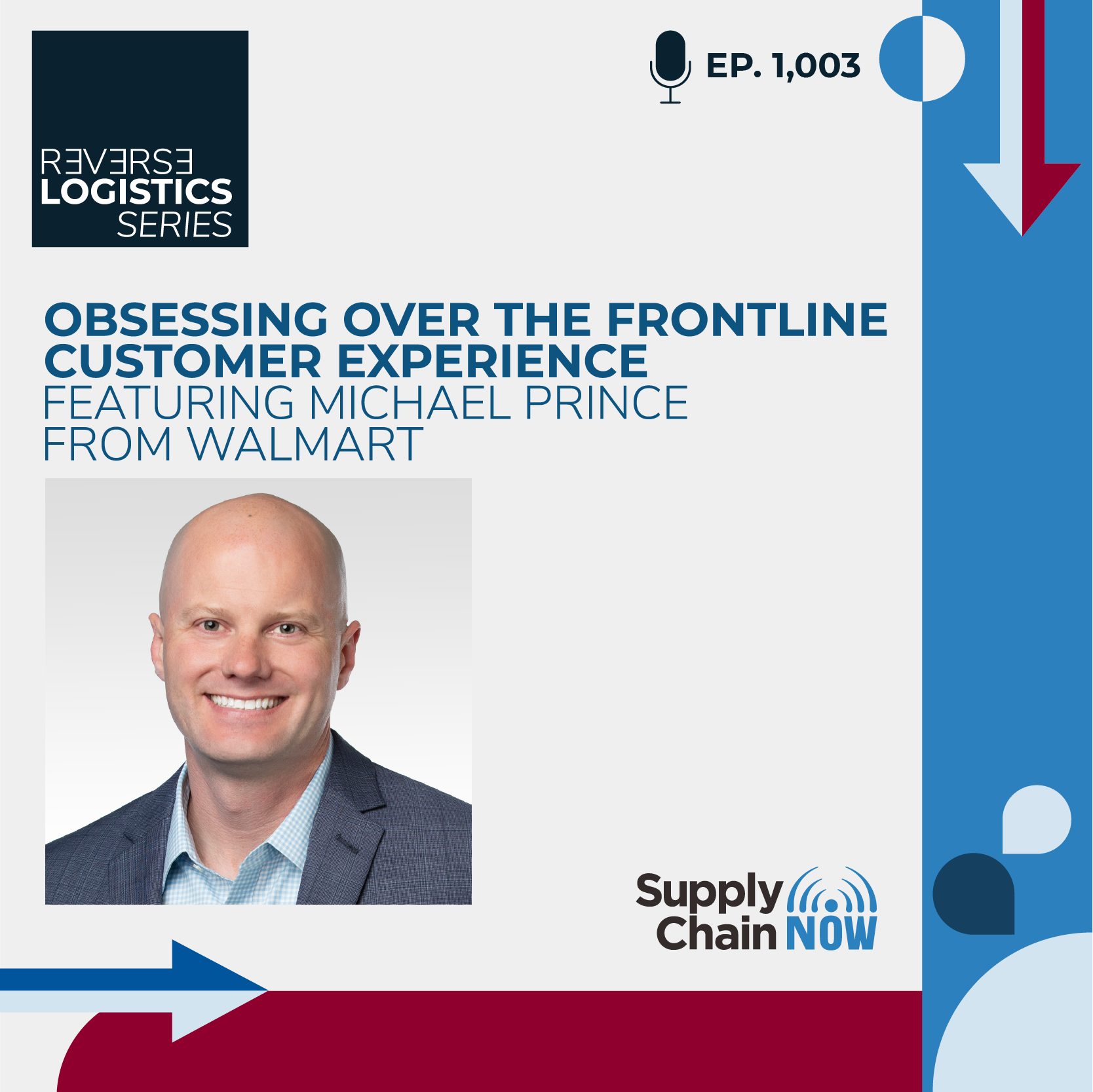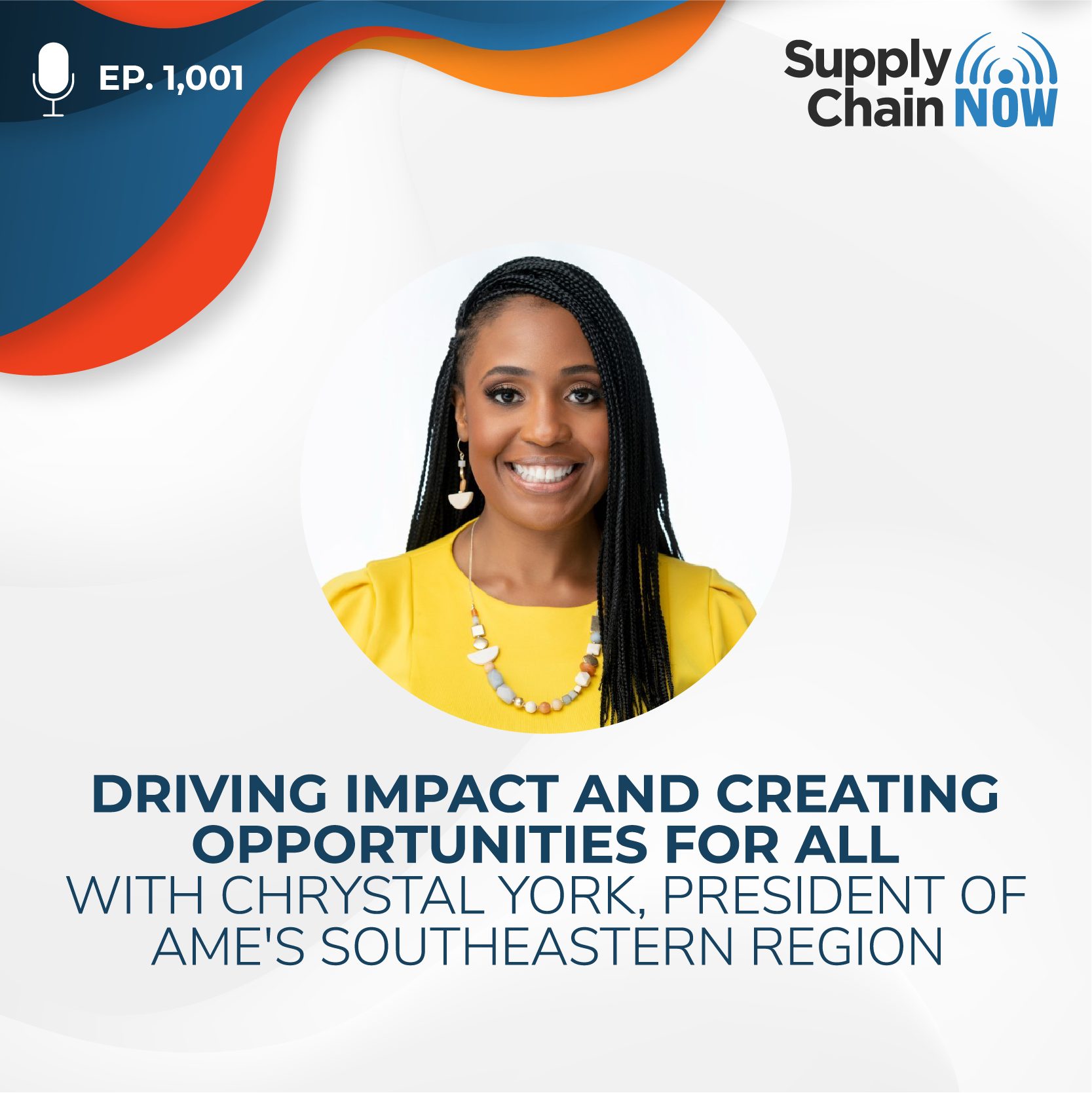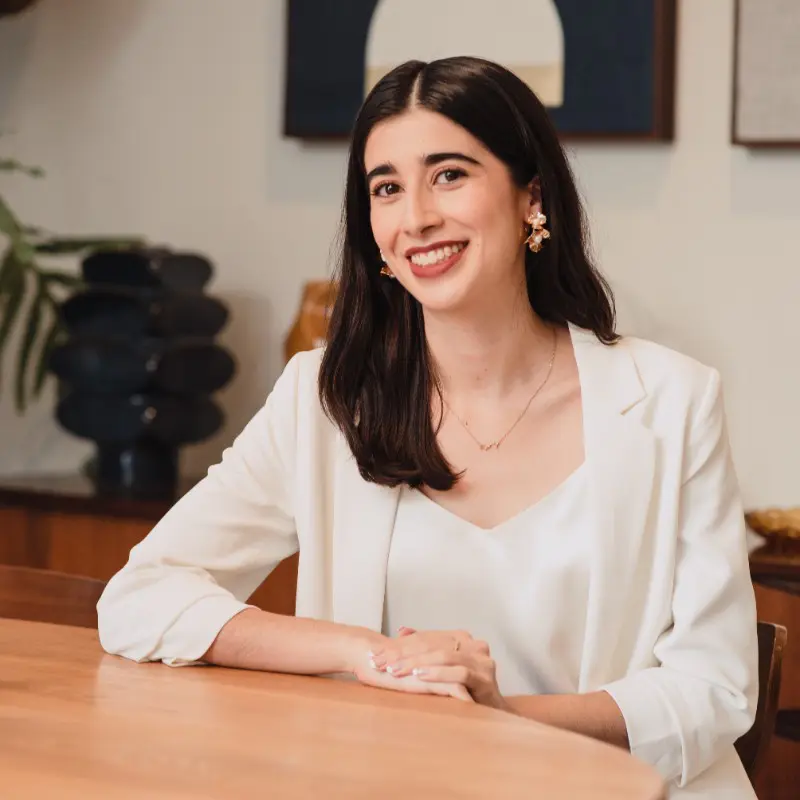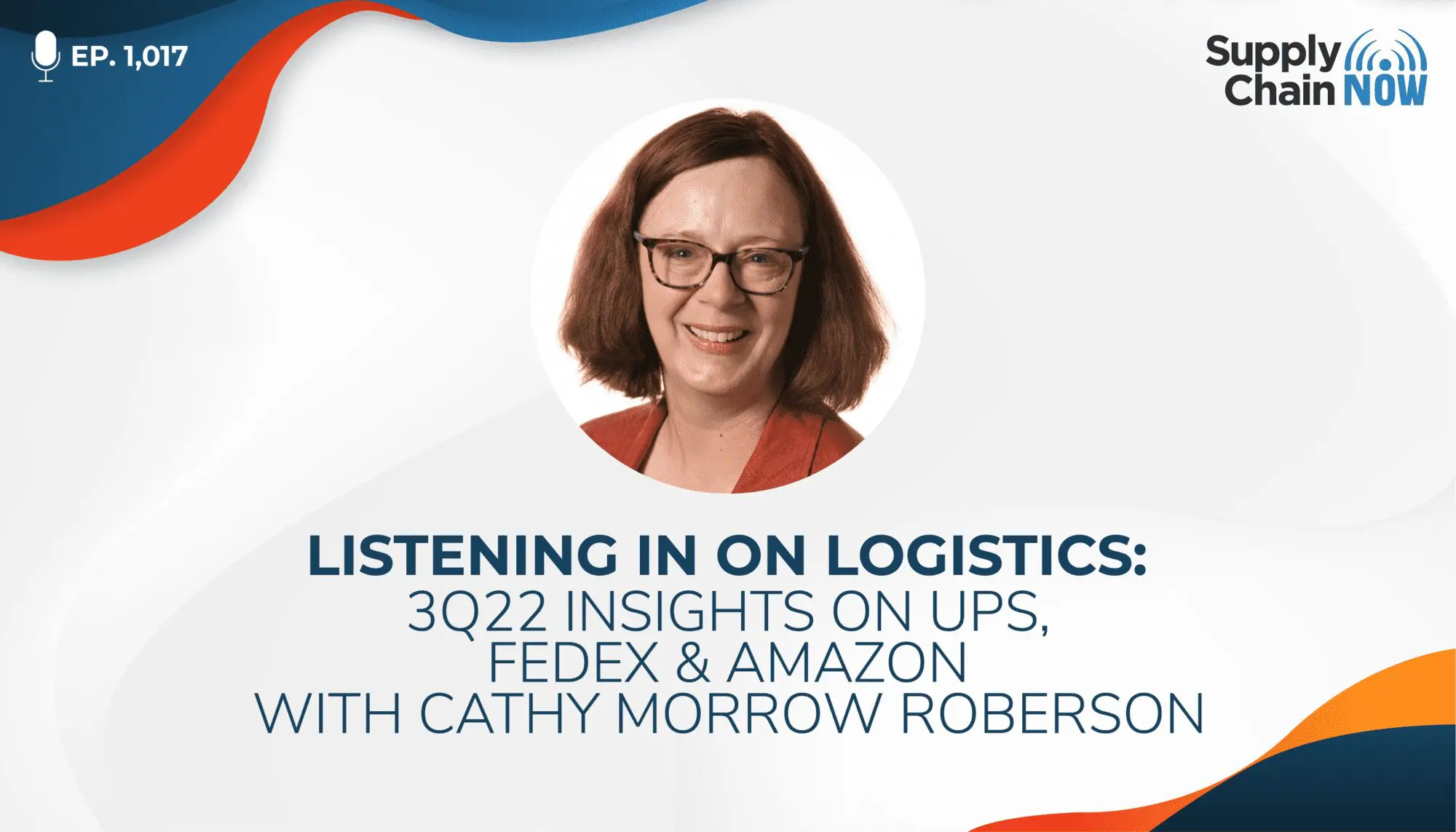
You almost have to be able to read between the lines, the invisible lines, and just kind of understand the companies. If you're just listening to a company for the first time, you know, you'll get some valuable information. But if you've listened to them for a number of years or a year, you'll start seeing a pattern.
-Cathy Morrow Roberson
Episode Summary
How did three top global logistics enterprises perform in Q3, and what can we glean from their strategies moving forward? In this episode, Scott consults with supply chain writer Cathy Morrow Roberson, aka the earnings call expert. Combining her love of research with all things supply chain, Cathy is a veteran listener and learner here to school us on how UPS, FedEx and Amazon are navigating logistics challenges, how the holiday season is shaping up, the future of air freight and more.
Episode Transcript
Intro/Outro (00:03):
Welcome to Supply Chain. Now, the voice of global supply chain supply chain now focuses on the best in the business for our worldwide audience, the people, the technologies, the best practices, and today’s critical issues, the challenges and opportunities. Stay tuned to hear from those Making Global Business happen right here on supply chain now.
Scott Luton (00:32):
Hey, good morning everybody. Scott Luton and one of our very special, uh, dear friends and guests, uh, Kathy Mauro Robertson with you here on Supply Chain. Now, welcome to today’s show, Cathy. How are you doing?
Cathy Morrow Roberson (00:45):
I’m doing great. How are you doing?
Scott Luton (00:47):
We’re doing wonderful. Uh, we were just talking pre-show. Um, I, I, I need to compile the rankings in terms of our repeat guest appearances, but I think you’re like top five all time. Uh, and that comes with maybe a championship belt and a, and a bottle of cheer wine, maybe. I don’t know. What’d
Cathy Morrow Roberson (01:05):
You think?
Scott Luton (01:06):
Yes, you’ll take it. Is that right?
Cathy Morrow Roberson (01:07):
I’ll take it.
Scott Luton (01:09):
<laugh>. Um, alright. We’re gonna have a lot of fun today. It’s great to have Cathy back with us. Uh, as I mentioned, one of our favorite guests here at Supply Chain, now, one of my most regular repeat guests. Um, today though, we’re gonna be diving into some of Cathy’s great endless work, right? Especially the market intel that she gathers from earnings calls and then some. So this is gonna be a lot of fun. And as I’ve said, I think on everyone of, uh, your appearances, Cathy, if folks, I mean, if they aren’t following you in general, but especially on Twitter, where you drop all these nuggets of market information and analysis and intel, I mean, they are really missing out. I know. I’ve really come to, uh, value and enjoy, uh, your perspective there, huh?
Cathy Morrow Roberson (01:48):
Ah, thank you so much. You know, formally I was a librarian for many years, so I look at social media as being my library Neat to share
Scott Luton (02:02):
And you like
Cathy Morrow Roberson (02:03):
Too much, but hey, you can turn me off if need be
Scott Luton (02:06):
<laugh>, But you like to make you like to make social media social as you share here a couple times as it should be. Uh, and we’ve talked about, uh, the, some of the, uh, relation, the real relationships that started initially digital and, uh, you know, that that’s been one of the several linings over the last three years probably. Um, okay. So Kathy, I wanna start with, you know, for some of the folks that may have missed, you know, some of your appearances here, some of your other great work that you do, uh, for the three people out there, maybe let’s make sure they have an opportunity to get to know you a little better. So, tell us where you grew up and some anecdotes about your upbringing a bit, Kathy.
Cathy Morrow Roberson (02:42):
Oh, dear. Okay. So I grew <laugh>. I grew up in Rock Hill, South Carolina. Um, graduated high school there. Uh, went to my undergraduate, got my undergraduate degree there at Winthrop.
Scott Luton (02:58):
Okay. Which went Winthrop
Cathy Morrow Roberson (02:59):
College at the time. Now it’s Winthrop University,
Scott Luton (03:02):
And that’s home of Winthrop. Is the, uh, uh, a lot of folks may know them. They’ve made appearances in the NCAA basketball tournaments that What’s their mascot? Kathy
Cathy Morrow Roberson (03:12):
The Eagle?
Scott Luton (03:13):
Yes. Okay. I know. So Walford’s, the Terris Winthrop is the Eagles always get them, uh, vice versa. Okay. So you went to Winthrop mm-hmm. <affirmative>, Uh, and then what?
Cathy Morrow Roberson (03:25):
And then, uh, it kind of dawned on me, I couldn’t exactly find a job with a degree in history. So I, uh, I was working at a library at the time, driving the book, My Bail. And so the kind people at the library said, Why don’t you get your, get a Master’s in library science because you can always get a job in the library.
Scott Luton (03:48):
Hmm.
Cathy Morrow Roberson (03:49):
So
Scott Luton (03:49):
Was that true?
Cathy Morrow Roberson (03:52):
Uh, well, it was at that time, no longer the case
Scott Luton (03:55):
<laugh>. Really?
Cathy Morrow Roberson (03:56):
Yeah. No, no, no. So many, um, uh, public libraries in particular are funded by, uh, local, state, and federal, um, um, money. So it’s usually, if you gotta cut a budget, that’s usually the library’s budget that gets cut. So, Really, um, yeah. So we went through a lot of ups and downs, uh, as I, while I was a librarian. But yeah, I got my master’s from the University of South Carolina. Okay. Yeah. Probably wearing my Clemson t-shirt there. <laugh>. Yeah. Uh, and today I, I support both, uh, teams. Um, but yeah, so let’s, Yeah. After several years as a librarian Yeah, I made the jump into the corporate world,
Scott Luton (04:48):
So I wanna talk about that in just a second. But before we get there, um, growing up in Rock Hill, you know, we, we, we, you and I both grew up in South Carolina. Right now I grew up in Aiken, which is, uh, on the southern border right? Of, of Georgians, uh, along the Savannah River. And Rock Hill is more, is, I think on the, the northern border. Is that right? Kathy?
Cathy Morrow Roberson (05:11):
Just south of Charlotte, North Carolina.
Scott Luton (05:13):
Just, Okay. So we’re kinda opposite sides of the state. Uh, I know some of my food favorites that I grew up with, you know, we love talking food around here. What, when you think of growing up in Rock Hill, what’s a, a food dish or a restaurant or something that was inseparable from your upbringing?
Cathy Morrow Roberson (05:29):
Okay. In Rock Hill, there was a place, Watkins Okay. Had been around, I don’t know how long it’s been around forever. I mean, well before I was born, and that’s been a long time. But they made the best hot dogs, chili slaw dogs. Oh my God. They were, gosh. And then my parents grew up in Spartanburg, so, you know, at least once a month we’d go to Spartanburg to visit my grandparents. And we always had lunch at the Beacon.
Scott Luton (05:58):
Oh yeah.
Cathy Morrow Roberson (05:59):
Uhhuh
Scott Luton (06:00):
<affirmative>. Man, you’re making me hungry, Cathy. Dad gum. I shouldn’t ask this question. Uh, you, plus you had me at the, at the, uh, uh, chili slaw dog, You know, I can eat, I can, um, I’ve had to watch myself, right? Because hot chili slaw dogs or slaw dogs in general are addictive. So I’ve got, you know, good things in moderation. But man, I think we’re the, we’re probably one of the few states slaw dogs are kind of a South Carolina thing, aren’t they? Kathy?
Cathy Morrow Roberson (06:27):
I think. Well now there is a place here in the Atlanta, well over in Marietta. Yeah. Uh, a shout out to them Brandy’s.
Scott Luton (06:37):
Okay.
Cathy Morrow Roberson (06:37):
They do a, they do a mean chili slot off
Scott Luton (06:41):
<laugh>. Ok.
Cathy Morrow Roberson (06:43):
Oh my God. It’s just a hole in the wall. Friendliest
Scott Luton (06:46):
Place. You best places. Yeah,
Cathy Morrow Roberson (06:48):
I see chili. It’s fantastic. It’s almost as good as Watkins <laugh>.
Scott Luton (06:54):
All right. So, uh, Watkins and Brandy’s some of these great places, um, to eat, um, uh, present and past. Um, alright, so let’s get back. So, uh, the library world was important for you, um, right outta college and then, uh, interrupted you a second ago as you were about to, you know, talk about your breakthrough into the corporate world. So, on that note, tell us, um, you know, what’s a couple of roles that you held, uh, in corporate America or, or in supply chain, you name it, that really shaped your, your path forward?
Cathy Morrow Roberson (07:30):
I think working at UPS really, really, um, shaped a lot of it. In fact, I mean, that’s where I’d learned about supply chains. I had never heard of supply chains until I started working at ups. Right. And I joined them simply because I had friends already working there. And, um, they had, uh, reached out to me. They were like, We’re getting ready to start a new products development team that’s not focused on packages, and we need help with research, and we know you enjoy doing research <laugh>. So that’s how I came to join ups. And, um, and it was a blast. I mean, I learned so much, you know, about supply chains through the almost 11 years I was with them. Really?
Scott Luton (08:18):
Yeah.
Cathy Morrow Roberson (08:19):
Yeah. Yeah. Yeah.
Scott Luton (08:20):
What a great marriage between your, your research side and your, your, um, you know, that that library world side with global supply chain where there’s no shortage of, of probably research to be done. I mean, this is like a marriage made in heaven. It sounds like Kathy, to me.
Cathy Morrow Roberson (08:40):
I, I certainly thought it was, I, um, I mean, I was involved in helping out the m and a team with a, with several acquisitions, you know, doing their initial research for them. Uh, anytime that we moved into a particular market or geography, I did that legwork. So, yeah, it was fun. Um, also out of our group came ups, Supply Chain Solutions, and that was the team that I stayed with, um, my entire time, primarily in Fright Forwarding.
Scott Luton (09:15):
Okay. Uh, and I think we, we’ve got some, uh, colleagues in common. I, I wanna say we’ve talked about Lloyd Knight before. We’re big Lloyd Knight fans. Right.
Cathy Morrow Roberson (09:26):
Lloyd was a man, was my last manager at up s so he was in charge of, uh, the government sector.
Scott Luton (09:36):
Okay. And,
Cathy Morrow Roberson (09:36):
Uh, so yeah. Yeah. So we helped, within his group, we helped manage, uh, transportation for, uh, the, uh, AFE group. Okay. Uh, the former PAs
Scott Luton (09:47):
Group. Oh, yeah. Yeah. A AFEs. Uh, so any of our veterans listening, uh, at least AFEs was around, Has it changed? When I was in Air Force, AFEs ran the, uh, the bxs, I think what we call ’em on Air Force Base, You know, the base exchange. They were, they ran the convenience stores and, or, or the class six stores, I think is, is what we called it. Um, Are they, is AFEs still, uh, doing what they do?
Cathy Morrow Roberson (10:12):
Yeah, they’re still doing, uh, what they’re doing. Yeah. I mean, back, we used to stop off at these places cause my grandfather was in the military and he retired. So we would always stop off at the military base close to Myrtle Beach, I believe. Okay. I forgot. And we’d always do our shopping there, but they weren’t called a’s at the time. I think it was just the old px. Our
Scott Luton (10:37):
Px. Yeah. Yeah. Um, and so I got on oh two, so it’s been a long time since I’ve even thought about that. Kathy, thank you for bringing that memory. A I remember the logo still. Um, and I think that was Myrtle Beach Air Force Base. I think that closed down right after, I think right after like Desert Storm and in mid nineties found not mistaken. Um, but that’s a, that’s a blast from the past too. Um, alright. So, and, and by the way, uh, I appreciate the, the good work you’ve done with us and in general for our veteran, uh, community. So really appreciate that, Kathy. All right. So let’s, let’s shift gears over to our center plated. It’s our, uh, chili slaw dog up the conversation day. It’s these Invest that Fly
Cathy Morrow Roberson (11:22):
Dog.
Scott Luton (11:22):
That’s right. <laugh>, Oh gosh. The, the, uh, these investor and earnings calls that you tune into regularly. Right. I really, as I mentioned on the front end, really appreciate all that you share from this wealth of information. Um, now, before we get into a couple that, you know, the UPS call, the FedEx call and some others, um, how long have you been doing this? And, and why should more folks tune into these calls?
Cathy Morrow Roberson (11:48):
Okay. I have been doing these since my UPS days, so <laugh>
Scott Luton (11:54):
Or quite some time. Um,
Cathy Morrow Roberson (11:55):
Yeah. So, uh, I did a lot of competitive analysis back in the day. So I would sit in on FedEx’s earnings calls, dhl, you name it, you know, any major, uh, logistics provider. I would listen to their calls on behalf of, you know, just to gather intelligence for ups. But really the fun was sitting in on UPS’s calls cuz there’d be a whole group of us in a room, um, listening into the calls. And we would cringe, like, Oh my gosh, no, don’t say that. Don’t answer that question. Don’t answer. You know, we be yelling, you know, But, you know, there was a lot of work that went ahead, went before these calls that we would work on, you know, the market updates, the revenue, We did a lot of that, you know, in my group. So yeah, it, it was hilarious. You know, some of them didn’t have much of a personality on the calls and, you know, we would just be screaming, you know, in the rooms. But <laugh> Yeah, it got to be, it was rather fun
Scott Luton (13:06):
<laugh>. So, So you’ve been,
Cathy Morrow Roberson (13:07):
I mean, yeah, I, I’ve been listening to the UPS calls ever since then. A as well as the FedEx ones. Those have been the two primary ones. I mean, that’s what, going on 20 years Wow. If not a little longer, uh, of listening to their calls. So it’s been an interesting journey to see how they’ve, both companies have evolved.
Scott Luton (13:28):
Oh, gosh. It, it, you’re, you’re, uh, you’re absolutely right. It is amazing to see how, uh, the, the ups and the downs and, you know, the evolution of, of both those organizations. And occasionally, if I, um, if I recall correctly from what I see, you’ll jump on, sometimes you’ll jump on a retail earnings call or, or this earnings call and, and you just, you’re piecing together kind of, uh, the global market and, and what companies are doing, huh.
Cathy Morrow Roberson (13:55):
Right. I’m, I am reading more retail and manufacturers. Um, I’m either listening to them or I’m reading their trans or the transcripts because it’s really interesting to see, to read, to hear from their point of view, you know, what their pain points are. Mm. You know, what they’re experiencing, what their outlook is for the next quarter, next year, and what have you. And I think you can pull out a lot of valuable tidbits and a lot of good learnings from, from these calls. Now, you also have to keep in mind, you know, understand how they’re wording things as well, You know, because they want, they wanna place Wall Street mm-hmm. <affirmative>. So they don’t wanna sit there and go, Oh my God, we sucked, you know, this poor, No, they’ll say it in a very nice manner. And maybe I shouldn’t have said that. I’m sorry.
Scott Luton (14:48):
No, I think, I think what, what, uh, really quick, I think that’s really important message to our listeners, right? Because it’s not always what folks are saying, and, and we’re not picking on anyone in particular. It, it’s the C-suite that the responsibilities to, to your point, kind of maybe not walk a tight rope, but to please, you know, put the right message out there. Right. A positive message out there. And sometimes it’s not what they say, but it’s really what they mean. Or maybe even what they’re not saying sometimes, Would you say, Kevin? Exactly.
Cathy Morrow Roberson (15:20):
Yes. Exactly. Exactly. So you almost have to be able to read between the lines, the invisible lines, and just ki understand the companies, as, you know, if you’re just listening to a company for the first time, Hmm. You know, you’ll get some valuable information. But if you’ve listened to them for a number of years or a year, what you’ll start seeing a pattern. Yep.
Scott Luton (15:49):
Um, okay. So folks, that’s a great opportunity to learn and to connect the dots, whether you’re just, you know, whether you’re a student, right? Maybe you’re going through a supply chain program right now, that’s a big wealth of information. Or if you’re, you know, a senior executive listening to us right now, and maybe you haven’t ever stopped and taken the time to see, to, to Kathy’s point, what your competitors do, are doing, what other business leaders are doing about the challenges of our, of our day. And whether you’re, you’re listening to the calls, Kathy said, or you get the, I guess the transcripts are free, You can get those and, and sometimes that’s easier to navigate.
Cathy Morrow Roberson (16:23):
Yeah. Yeah. Up to a certain point. You can listen, you know, there’s various websites that you can, um, read a certain number for free before they start telling you, you gotta subscribe. Okay. So Seeking Alpha, there’s a motley full, um, board that I’ll, I’ll tap into at times. So it depends. I mean, I do have a, a subscription to Seeking Alpha just because I’m constantly reading these transcripts. But not only reading the transcripts is important, but reading the actual s e c filings, cuz there’s usually a lot more in those 10 Qs and those annual, um, um, filings. Not necessarily the pretty annual reports, you know, the very glossy look, but the actual 10 K filings with the S E c, that’s where you can find a lot of industry, um, information. So if you’re looking, if you’re having to do research on a particular industry, definitely recommend reading a 10 K filing. Okay. Because they’ll give you that as well as competitors and just the market and overview how they’ve been performing and
Scott Luton (17:34):
Such. Okay. Man, I’m glad there’s smart folks out there that really do meaningful research, including tax forms. Uh, that’s <laugh> that, that’s a lot different than the comic books. I mean, that’s some, that’s some heavy duty stuff. So, uh, and it sounds like that’s, um, it’s one of the channels where you get, you know, the market intel that you’ve become so well known for sharing. Um, so let’s, let’s dive into some of that. Um, two of your favorite companies that you’ve established to, to, to check out these earnings calls are UPS and FedEx. And I believe UPS held their most recent, uh, earning call yesterday, at least when we’re recording this, this podcast. And FedEx’s was, was in September, if I have that right? Right. Correct. Correct. Let’s talk about you, uh, which one you wanna talk about first.
Cathy Morrow Roberson (18:19):
Let’s start with the good first, <laugh>.
Scott Luton (18:21):
Okay.
Cathy Morrow Roberson (18:22):
Let’s start with ups.
Scott Luton (18:23):
So what did you, what are some of the most important things that you picked up, uh, on the recent earnings call then?
Cathy Morrow Roberson (18:30):
I think first of all, they, uh, Ms. Tome, the ceo, um, and her opening remark, she said that the third quarter, which that was the earnings that they announced yesterday, had the highest consolidated operating margin for third quarter in 15 years. For them to have such a high margin like that was, was a welcome surprise, I think, to the market. Uh, meaning they’re holding their own, They’re, they’re managing their cost, they’re managing their capacity. They’re doing this in a time that, um, we’re seeing a normalization occur across all industries. And this normalization, as I’ve re has a, I’ve described it in a various articles that I’ve written, it’s a bumpy road. So, and it’s gonna hurt, you know, it’ll be hurtful. You see spot rates falling as compared to last year. Contract rates may be declining and such as that. But they are doing a, they did a fantastic job, in my opinion, um, over this past third quarter. And it’s the third quarter that ended on September 30th. So they’ve, No, you know, and, and I said they did a fantastic job. That’s <laugh> the way they did it was, you know, they raised surcharges, Right. Um, they are able to pick and choose, really, they’re customers and they want more profitable customers. Of course.
Scott Luton (20:10):
Well, and that seems really quick, Kathy, that that seems to be when, when Carol Toma, um, assumed, um, the, the lead of the, the company, right. As ceo, that seems like be one of her priorities from the GetGo, Right? Uh, uh, uh, serving more, uh, smart business and really protecting those margins. Right. It seems to be, uh, what she got starting with, right?
Cathy Morrow Roberson (20:35):
Carol May, who is the, uh, CEO of ups, she was prior to that CFO of Home Depot. And, um, she also sat on UPS’s board, uh, for a number of years. So she, she understood UPS’s ways and such, but she also brought to, to UPS that outsider’s view, you know, from a financial perspective, which I think it was so much needed for the company because it, it’s always been so internally focused, which is nothing wrong with that. But the world has changed greatly, Right.
Scott Luton (21:14):
And
Cathy Morrow Roberson (21:14):
In the past 20 years, and they really needed that outside perspective. And she brought it, she, um, um, had, you know, she had gr you know, each service offering reevaluated and, and such as that. And, um, she, she cut the fat out in a lot of places that needed to be cut out. Some of that fat may have been a little too much, but <laugh>, you know, who am I to say I’m not a ceo? But,
Scott Luton (21:46):
Uh, but a third quarter results from all of those tough decisions seems like, you know, a lot of those good were good moves, huh?
Cathy Morrow Roberson (21:54):
That decision to cut as well as to invest the correct way. She, they’ve invested a lot in technology, automation of facilities is just absolutely astounding. Um, so they’re making their operations more and more efficient thanks to this technology cutting out unnecessary, um, uh, line hauls and such mm-hmm. <affirmative>, optimizing routes, all of this is saving them money, but at the same time, <laugh>, it’s you, you know, the shipping cost. Mm-hmm. <affirmative>, man, they hurt shippers, but yeah. After two and a half years. Yeah. Right.
Scott Luton (22:37):
<laugh>. Yeah. Um, so anything before we switch over to, uh, FedEx and what you picked up on their recent calls, Anything, any last comments around what you heard, uh, yesterday on the UPS call?
Cathy Morrow Roberson (22:52):
Um, the holiday season. So they’re more or less expecting a return to a normal, normal type of holiday season, You know, pre pandemic. So the peak volumes won’t hit until later in the season. It’s because we’re all returning to the stores we’re and and such. Um, but at the same time, they’re expecting volumes. Fourth quarter volumes to be down year over year. Yeah. Not surprising. Not surprising.
Scott Luton (23:25):
All right. So, so UPS strong third quarter. Right. A lot of, lot of wins there. As I’m looking at a recent Wall Street Journal, it sounds like, uh, Domino’s Pizza and Ikea furniture, Ikea in particular had a record revenue, uh, quarter, if I’m not mistaken. So it sounds like those are a lot of the winners right now. And by the way, way speaking of a, a complete aside, Domino’s has reinvented a lot of their products. Now. I like, I like the mom and pop pizza joints, and we have a lot of those out there where I live, but occasionally, you know, you’ll have to get something delivered. And, and I’ll tell you, Domino’s, pizza’s come a long way, especially now they’re deep dish, uh, Kathy, how, how do we, how do we always, everything goes back to food, right? Hot dogs, pizza, cheer, wine, you name it. But hey, that’s from my earnings call <laugh>, um, uh, analysis. Okay, so let’s,
Cathy Morrow Roberson (24:19):
Interesting. Now before we switch over to FedEx, if I may, beginning Ray Teller are beginning to announce their third quarter earnings. And this week there’s quite a few that’s on the schedule. Uh, Sketchers, I don’t know if, Do you wear Sketchers?
Scott Luton (24:36):
Um, I don’t, but maybe I should.
Cathy Morrow Roberson (24:39):
I I don’t wear them either. Uh, they don’t fit properly, so maybe No, Sketchers, if you’re listening, please, you know, help me here <laugh>. Uh, but they, they announced a really nice, um, quarter, uh, yesterday. However, you know, despite that, uh, revenue, uh, good revenue, Yeah. Uh, overall revenue, they’re struggling with inventory. That’s gonna be the story with a lot of retailers is, you know, there’s a lot of inventory. And it’s not because they all decided to go out and just order massive, massive amounts of inventory. It’s a lot of reasons, uh, for this inventory,
Scott Luton (25:24):
Uh, bonanza, right? Yeah.
Cathy Morrow Roberson (25:27):
I mean, you know, we had, um, and you know, it starts further up in the supply chain when you have manufacturing in China, most of the manufacturing is in China. Yep. Or in other Asian countries. But when they shut down because of Covid and a Covid outbreak that has that ripple effect down to our front door. And so that off again on, again, again, shut downs of manufacturing plus capacity on the ocean, freight lanes plus, uh, capacity constraints in the trucking and rail intermodal just resulted in not only delays and getting your inventory retailers inventories, but also all of a sudden you’re getting all this inventory, all of you know, and bunches, right? So yeah, you’re, you’re getting Christmas stuff in March. You’re getting Halloween stuff in January, but it’s all coming in big, massive bunches, which is causing shortages in warehouse space and such. So that whole build up is also playing into this inventory hangover. Also, inflation costs. So when you see, oh my gosh, yeah, inventories were up $45 billion year over year. Well, a good bit of that is also inflation, higher cost to manufacture that, that inventory, higher cost to ship that inventory and so on. So there’s a lot more to that inventory.
Scott Luton (27:09):
Yeah. It’s not just placing big orders, uh, uh, you know, um, cause of the uncertainty. It’s a, a wide variety of factors as you’re laying out. In fact, uh, speaking of inflation, I know Halloween’s right around the corner, uh, from when we’ll be publishing this, this conversation. And in general, I think I saw earlier this week, Candy is about 12, 13% across the board more than last year. But, uh, Skittles and Starburst in particular, uh, one was up over 40% from last year, and one was up over 30% last year. So if you like Skittles and Starburst prepared to pay more, uh, this year, um, alright,
Cathy Morrow Roberson (27:48):
Well there was a shortage of Halloween candy last
Scott Luton (27:50):
Year, Right? Right. Do you
Cathy Morrow Roberson (27:52):
Remember
Scott Luton (27:52):
That? And there’s been some warnings this year from, um, what, what candy company was that, uh, that talked about? Um, how, uh, it wasn’t Nestle. It was, um, I think it was Hershey, Hershey’s CEO came out and, and, um, talked about maybe the lack of capacity they have because they’ve been dedicating so much to, you know, year long demand, Uh, who knows, going back to C-suite language and, and positioning, who knows? I’ll, I’ll leave that to the smart analyst like yourself. But, you know, um, Kathy, I’m never, you know, whether it’s Twix or Snickers or, or even the less popular stuff, we, we’ll get our candy fix some ways, some ways, shape or form the day after.
Scott Luton (28:40):
Yes. I’ll take it from my kids. Uh, Cathy, don’t tell them that. Just between you and me. Um, alright. So we’ve talked about, um, a lot of stuff so far. You know, certainly ups, uh, they’re big third quarter got some of your other industry observations, uh, across retail. Uh, we talked about that, the inventory bonanza and some of the reasons why and why it’s not just real simple. Uh, there’s a lot of complex, a lot of moving pieces as Mo as probably all of our listeners know across global supply chain. So now let’s talk about FedEx. Cause it’s really a tale of two cities. If I’m, uh, if I’m, um, tracking with you here. So tell us about a FedEx call. I think it was in September.
Cathy Morrow Roberson (29:20):
Yeah. So <laugh>, trying to think of a nice way of wording, uh, how, how to frame the FedEx story. So FedEx reported in September, and it was for their fiscal first quarter.
Scott Luton (29:33):
Okay.
Cathy Morrow Roberson (29:34):
Uh, which was June to August. And it was not a pretty picture with not at all. And, um, the blame was placed on the global economic conditions, uh, you know, stating that we were heading down the path towards recession. The whole, uh, Russia, Ukraine issue, higher cost inflation, Everything was blamed on their, um, quarter, which they missed. Totally. I mean, profit, I don’t have the exact numbers, but the numbers were not good. Let’s just put it that way. Uh, the only shining light was FedEx Express, not FedEx Express, Excuse me. That one was not a good one. Uh, FedEx Freight. FedEx Freight was the shining light. They came out, uh, profitable, they grew, um, it was through revenue management, which is, you know, let’s charge more. But I mean, it was fuel surcharges, higher fuel prices that they had to, um, had to, uh, uh, give pass on to their customers and such, uh, FedEx Express and FedEx Ground, both, which have been such leading divisions within FedEx, just did not have a good quarter whatsoever.
Cathy Morrow Roberson (30:55):
And really, I think it boils down, and this is me, Uh, and just looking at their numbers and listening to their calls for years and years, to me it was more the reason really was internal, not necessarily external. Yes, external probably did play a role, but internally they’ve got a lot of work that needs to be done because each division, FedEx Express, FedEx Brown, FedEx Freight has historically operated as separately. They did not speak to each other. They had their own networks. Hmm. So, you know, if you threw a FedEx Ground package into FedEx Express’s network, it would spit it back out going Yeah. No <laugh>. Uh, but they’ve been <laugh> they’ve been trying to integrate, um, these networks.
Scott Luton (31:49):
There’s gotta be some economies of scale there, Kathy, that maybe they’ve missed out on.
Cathy Morrow Roberson (31:54):
I mean, it took them too long to really realize they needed to be doing this. Maybe they’ve known all along that they’ve needed to do this, but they’ve started doing it right before the pandemic hit. And then, you know, the world turned upside down, uh, after that. But they still kept pursuing this and they’re still working on it, but it’s difficult and it’s gonna take time. And I’m not sure they can succeeded. Really, just knowing how rigid these divisions, these networks have been. Um, they have shared some of their progress in their success stories. Ups, I mean, ups, FedEx Freight, jumping in, carrying some of the ground stuff. Mm-hmm. <affirmative> Express, jumping in, carrying some of the ground stuff. But the problem is FedEx Express, FedEx Freight, those are FedEx employees. Mm. FedEx Ground. Those are contractors, not in the sense of an Instacart or a DoorDash. What it is, is FedEx ground is, you know, companies buy the routes. Right. And then they manage those routes. They hire the workers and such, and they have to maintain, they sign a contract with FedEx with, you know, the list of to-dos and not to-dos.
Scott Luton (33:19):
Yep. Different culture, different operational landscape. Um,
Cathy Morrow Roberson (33:22):
Exactly. Yeah. And it’s a lower cost network versus the express and the freight divisions. Mm. So that’s where you see a lot of those, the cost, the impact, you know, the profitable profitability being hit and such. Right. So,
Scott Luton (33:40):
Well, so also, part of the good news you’re sharing from what’s going on at FedEx is it sounds like they’re starting to see some of the, they might be small fruits, but fruits of their labor in terms of getting these, these silos, talking with each other and maybe collaborating with each other. Um, and you expect to see, um, you know, if you had a, your break out, your crystal ball, I know mine’s been broken for forever, but do you see the path forward for FedEx based on what they’re trying to do from a leadership and an integration and a kinda a ecosystem standpoint? Do you see, uh, you know, a light at the end of the tunnel or at least a, some, some sort of light at the end of the tunnel?
Cathy Morrow Roberson (34:20):
Well, okay, so that light is pretty dumb at the moment. I mean, they really have a lot of work that needs to be done, but there’s so many people rooting for them. I think they can pull it off. I really think they can. Uh, but it’s gonna take a while and I don’t know, they need to speed it up, but I mean, it’s, it’s gonna cost a lot of money. There’s a lot of articles, a lot of commentators out there that’s calling for them to be sold.
Scott Luton (34:49):
Yes, yes. I’ve heard a lot of that’s not gonna happen. You’ll think it’s gonna happen.
Cathy Morrow Roberson (34:54):
No, that’s not gonna happen. I mean, Mr. Smith, the founder of FedEx, will not let that happen. I’ve, I’m up the of the belief the company will go private before they would allow themselves to be sold. Okay, that’s me again. Um, and it’s just, they’re needed. They really are needed. Uh, it’s a, it’s a good company. It’s just they have a lot of work they need to, to get done that needs to get done. So.
Scott Luton (35:24):
Well, I like how you’re pulling for, you’re, you’re, you’re, you’re not, uh, watering down kind of the current state Right. With what they’re battling. Uh, there’s, as you mentioned, there’s lots of work to be done, but, uh, you know, we, we both know probably lots of good people that are part of the FedEx team and, and UPS team for sure. And, and, uh, we hope, we hope they get it going and they’re making, they make progress in, uh, the throws of what they’re, they’re going through. Uh, and by the way, I like your crystal, that that’s quite a crystal ball, uh, projection there that, uh, rather than be acquired, they’ll go private before, you know, that might would happen. That’s, uh, that’s an interesting thought. Um, okay. Anything else? I wanna shift gears over as we start to kind of come down the, uh, the home stretch here. I wanna ask about one of your, uh, favorite things in life before we go there, Any last thoughts about FedEx?
Cathy Morrow Roberson (36:15):
Oh, goodness. No, but we’ll, you know, their next quarter, um, announcement will be in December. Okay. For the, no, for the November period. So I’m really looking forward to that, to see what kind of progress they’ve made. Um, I do know that, uh, they had told, uh, Bree Carre, who is one of their, um, executive, uh, senior Vice presidents, uh, was on CNBC earlier this week or last last week, and assured the public that they are ready for the holiday season. They did not give any projections like UPS has, but they have assured the market that they are ready, and they are more than capable of handling, you know, the holiday season. Instead of hiring seasonal workers, like, you know, ups, the post office, Amazon, and so on. Uh, they, uh, Miss Carre said that they’re leaning into their existing workforce, their existing network, and they’re gonna flex it. And as the need, they will shift. We’re needed. So, Okay.
Scott Luton (37:22):
Interesting for us. That’s right. <laugh>. Okay. All right. So, uh, from FedEx, you mentioned Amazon a second ago. Uh, I saw you, uh, a reporting the news that, uh, some folks in industry have been talking about Amazon. It’s adding 10 Airbus 3 33 hundreds, if I said that, right? Mm-hmm. <affirmative>, um, and I think, uh, the Hawaiian Airline, um, company is gonna be operating them for Amazon. They’re kind of, it sounds like they’re kind of upgrading their fleet and, and letting some of the older models maybe go into retirement. But your thoughts on that news?
Cathy Morrow Roberson (38:01):
Well, okay, so <laugh>, um, Amazon’s, uh, okay. So Hawaii Air is a new partner for Amazon. So they’ve added another partner. They’ve got quite a few now. Um, you know, Atlas, a, T s g U P, ups, um, Mesa, I, I can’t name them all, but it’s a long list. And now Hawaii Air is joining this group, and yeah, you’re correct. Uh, they will be managing these 10 airplanes, uh, management, flying them, uh, within the domestic US also between Hawaii, you know, between Hawaii and, and the US as well. So I think now this is me with, with the little wonky crystal ball. I think this is also gonna be a play along the trans specifically. So, you know, Amazon does, they import a lot of items from Asia mm-hmm. <affirmative>, and I think they’ll eventually take advantage of these airplanes, um, to, uh, to move this, these imports into the US themselves versus relying on, um, other partners that may be doing that on their behalf.
Cathy Morrow Roberson (39:23):
Um, and you’re also right, they are retiring some of the older planes that are up for, uh, renewal, they’ve, they’ve lease these through other partners and instead of signing those contracts, they’re taking on new, bigger airplanes from Airbus. And I believe these are the first air buses, um, that they’re gonna be, that’s being put into their network. Cuz I think the rest have always been Boeing. I’m not sure I could be wrong there. Uh, so it’s gonna be interesting to watch, but, you know, it’s good to see Amazon bullish on the air, air cargo market. UPS was also bullish on the air cargo market back in August. They, um, ordered four new airplanes, and these are more fuel efficient airplanes, so they will be replacing probably some of the older models within, uh, UPS’s fleet. So it’s, it’s good to see this in the air market, uh, because the air cargo market has not, it’s, it is just kind of, um, iffy. Um, it’s kind of iffy at the moment. Right. Uh,
Scott Luton (40:38):
Yeah, The bow put it nicely. Yeah. To put it nicely, the Boeing Airbus, uh, story, we, we’ll have to have you back and we’ll, we’ll dive into that. That’s interesting. Especially what Boeing has been through in recent years. Uh, so I guess it’s a good win for Airbus those tier in aircraft. I wonder what the size of that deal was, Um, but a good sell for Airbus, uh, to Amazon. Um, okay. Before we we’re gonna talk about freight forward here in a second, uh, one of your newest, uh, projects and publications that’s really resonated with the marketplace. Um, but before we leave Air Cargo, why is Air Cargo now, you’re, you’re a big airplane enthusiast. I’ll, I’ll say air cargo enthusiast, it seems to be one of your favorite things to report on and analyze and talk about. Why is that?
Cathy Morrow Roberson (41:23):
Well, <laugh>, despite the, the port, the ocean freight port picture, I do have an airplane hanging above that. Uh, it’s a C one 30 that was made, um, out of a beer can, which is absolutely fascinating to me, is made by a, a, um, a gentleman from, who retired from Boeing. Uh, but the C one 30 has a special place in my heart because my husband works for Lockheed and he is on that C one 30 line. So yeah, guess what our conversations are like, you know, at the dinner table. But no, I’ve always, I’ve always loved airplanes of my, my uncles, uh, my great uncles, uh, were, uh, in, in the Air Force. Um, they flew airplane during, in World War ii. Um, my grandfather was in the Air Force as well, so I grew up with airplanes. And also, you know, just to bring it back, you know, towards air cargo. I was in the air freight forwarding group at UPS for, for a number of years. So, yeah. Yeah, yeah, that
Scott Luton (42:31):
Makes sense. Um,
Cathy Morrow Roberson (42:32):
That’s where a lot of this still comes from. And, you know, and today I write, um, a column for Air Cargo World Magazine, and I focus on express, uh, primarily also freight forwarders. And, um, and sometimes I, I throw them a loop by sending them, uh, last month <laugh>, because that last mile impacts impacts the rest of the supply chain as well.
Scott Luton (42:59):
That’s right. Well, hey, here’s, here’s a little factoid. I bet you already know this. Uh, I discovered this, uh, just a few weeks back. Um, so Delta, right? One, one of the world’s largest airlines, I, I’m not sure why I always made this assumption, but I thought the whole Delta, uh, brand name was meant to imply the delta in service, the, the higher service they offer, and maybe some of the competition, I, I don’t know where, maybe I read that somewhere, or maybe I just made that assumption. But where they got that name from is, uh, is in this origin story, right? A crop dusting company. I can’t remember the name right off, but they were based really in the Mississippi Delta area. That was their primary territory. And so that’s where the Delta name came from, uh, in, its, we’re talking back in the, uh, um, thirties, forties, fifties, long time ago. And that’s where the delta that we all know and love now, where that, where its origins came from. So how about that?
Cathy Morrow Roberson (44:00):
I had no idea.
Scott Luton (44:02):
Well, me and you both. That is really
Cathy Morrow Roberson (44:04):
Cool,
Scott Luton (44:05):
Huh? Um, so <laugh>, so anyway, little factoid there. So let’s move, uh, speaking of, uh, more good information facts, uh, industry takes analysis, freight forward, uh, is a new, uh, I call it new. I don’t know how many, how many additions have you published of Freight Forward, roughly?
Cathy Morrow Roberson (44:24):
Well,
Scott Luton (44:25):
Dozen,
Cathy Morrow Roberson (44:25):
30 to five.
Scott Luton (44:26):
Oh, really? Okay. So it is, I, we can drop the new moniker. 30 35 editions is a, it’s a LinkedIn driven newsletter, Is that right? That’s correct. Those are, those are really easy to access or easy to subscribe to. Easy. It’s easy to, um, one of the things I love about those LinkedIn newsletters is it’s easy to comment and engage in conversations, you know, based on kind of the format and all, whether you’re, you’re engaging with the author or authors or other folks that are digesting the same information and, and, and, uh, talking about it. So tell us what, um, what type of content drives Freight Forward and how, you know, where can folks sign up for it?
Cathy Morrow Roberson (45:05):
Okay, so Freight Forward came out from, um, a discussion that I was having with some folks at the Journal of Commerce. Uh, and they just kind of threw it out at me. Why don’t you start this newsletter out on LinkedIn and see where it, where it goes. The, what it is basically is I’ll take, uh, some of the articles that the Journal of Commerce writes, uh, the previous week and try to tell the supply chain story, you know, link it all together, Ocean Air Trucking, Rail, Intermodal, all the way down to parcel. And, um, as not only Journal of Commerce articles, I’ll throw in some of the Air Cargo world and some of the other publications that, that I, little
Scott Luton (45:54):
Of this little bit of that little cinnamon, little kinda
Cathy Morrow Roberson (45:57):
Throw in a little bit of stuff. And then I tell the supply chain story as a whole, because so many times when one is reading, um, articles, it’s very siloed. Again, it’s very ocean freight specific, but it doesn’t really tell the story of how does that impact the trucking or yeah, intermodal. So this is kind of my attempt to, um, to link it all together. And I do this really on behalf of the Journal of Commerce. Um, I have always been a big fan of their articles. I’ve used them, um, for a lot of the work that I’ve done for clients, and I’ve known them going back to my E ps days. Mm-hmm. And also at the end of, uh, each, um, Freight Forward, I’ll add an economic outlook, you know, what’s coming up in the, you know, that given week, you know, the ppi, the cpi, gdp, whatever, and a link to, to that. So, because those have really huge impact on supply chains, but it’s free. It’s free and people can just really go on. Um, not really sure how you find the newsletters. Do, do you have to look it up under my name or can you do a search?
Scott Luton (47:16):
Probably both, but, we’ll, we’ll make it easy. So, uh, we will put a link, maybe to the most recent one on the, on the episode page. So folks can click on that one, click away, and then they can also, from there they can subscribe or connect with you. How’s that sound, Kathy? Yeah.
Cathy Morrow Roberson (47:31):
Ok, cool. That sounds good. They come out every Monday morning. I try to get them out by six o’clock in the morning, but sometimes it’s easier Seth, than done. Just depends.
Scott Luton (47:41):
<laugh> well, it, it’s, it’s good content. And if you gotta wait until seven, it’s worth waiting for us. Y’all check out Freight Forward, uh, and again, you can connect, we’ll have a link in the episode page, episode notes, but you can connect also search Cathy Mor Roberts on LinkedIn and find it that way, or probably, I bet, I bet if you drop straightforward in the LinkedIn search bar, I’m not sure if they’ve added a newsletter search, specific search just yet. But, uh, regardless, hey, we’re gonna have link for you in the episode notes. All right.
Cathy Morrow Roberson (48:08):
You also have a nice LinkedIn newsletter too.
Scott Luton (48:11):
We, So ours is new. Uh, we have been, uh, experimenting a little bit. We, you know, Kathy, we, we’ve been collaborating for so long and putting out so much content. We really, you know, we were looking for something more unique. So we weren’t just, you know, uh, sharing our podcast and live streams. I kind of wanted to, uh, it to be a, um, about business, but a little bit of history, a little bit of our, our points of view that some of our hosts have that that may be, you know, missed and all the shuffle. So yeah, we’ve been, uh, it’s called, with that set, I think we’re, uh, 10 or 11 additions in, and it’s really been, it’s been a, a fun project. So that’s where the, um, that’s where we came across that Delta, uh, origin story and, and corrected our assumption there. So it’s been really fun.
Cathy Morrow Roberson (48:59):
It’s a good newsletter. I subscribe to
Scott Luton (49:01):
It. Well, hey, man, that makes my day, man, <laugh>, uh, when great, great writers and, and analysts and, and pros like you, uh, appreciate content. I think that’s, uh, that’s always very rewarding. So, um, so folks, check out Freight Forward, great LinkedIn newsletter, check out. With that said, that’s our supply chain now, uh, LinkedIn newsletter. How can folks connect with you? Kathy, I know, uh, Journal Commerce great, great work you’re doing there. Eric Johnson. Um, we’re big fans of Eric in yours. Uh, of course, our friends at Reverse Logistics Association, Tony Sheroda, great team over there. Um, and that’s just the tip of iceberg on on some other stuff that, that you’re, um, cooking up and working on. How can folks connect with you though?
Cathy Morrow Roberson (49:43):
Uh, honestly, the best way is through social media. So, yeah, LinkedIn or my, uh, Twitter feed, which is CM Robertson zero six.
Scott Luton (49:54):
You beat me to it. I was just, I was just about to share folks, if you’re on Kathy, we’ve talked about this before. Um, Twitter is like black licorice. It’s like, um, it’s like Crocs. It’s likes either you love it, you love them, you, you, you’re big fans, or <laugh> or you’re not right folks, if you’re on Twitter, right? And especially if you love all things supply chain and global business and, and what we’ve been talking about here today. Make sure, do yourself favor, follow, uh, Kathy. And that’s at CM Robertson oh six, right, Kathy?
Cathy Morrow Roberson (50:30):
Yeah. I mean, you also get photographs of my hikes, pictures of my cat <laugh>, uh, progress of house, uh, projects. So yeah,
Scott Luton (50:42):
I love it. It’s life. It’s life. And it’s social media. It’s social media. It’s important to share, um, yeah, how life. I
Cathy Morrow Roberson (50:51):
Also do a blog post on Sub Stack as well. That link is on my Twitter profile,
Scott Luton (50:56):
So, Excellent. All right. We’re connecting to Dots here, uh, for our listeners. But Kathy, always, uh, big fan of what you do, Uh, appreciate our friendship and collaboration going back, uh, years now. Uh, keep, keep doing it. Uh, you’re informing so many folks and filling in that blind spot that we all have as humans or supply chain practitioners, or you name it. And it’s a ton of fun. So Kathy, really appreciate you joining me here today.
Cathy Morrow Roberson (51:22):
Oh, thank you so much for inviting me. I appreciate it.
Scott Luton (51:26):
Well, we’re gonna do it again soon. I think we’ve got a couple more episodes teed up, monthly episodes where we’re really gonna dive into, uh, Cathy’s observations and analysis, uh, of, of companies and, and operations out there, what’s going on. So stay tuned for that. Uh, this is the first one, uh, and we’re gonna wrap the year on a high note with the November and December shows along those lines. So big thanks to Cathy Mauro Robertson for joining me today and having a great conversation. Hey, to all the folks that tuned in, uh, whether it’s a video version or a podcast version, thank you. Let us know what you think, you know, reach out, start a social thread. Hit us up on Twitter. Let us know what you thought of, uh, some of the points and conversations we’ve had here today. But most importantly, folks, Scott Lutton, on behalf of our entire supply chain now team, challenging you to do good, to give forward and to be the change that’s needed. On that note, we’ll see next time, right back here on Supply Chain now. Thanks everybody.
Intro/Outro (52:17):
Thanks for being a part of our supply chain now, community. Check out all of our programming@supplychainnow.com and make sure you subscribe to Supply Chain now, anywhere you listen to podcasts. And follow us on Facebook, LinkedIn, Twitter, and Instagram. See you next time on Supply Chain. Now.
Featured Guests

Cathy Morrow-Roberson began her career as a librarian working in libraries in North & South Carolina and in Georgia. However, during the first wave of e-commerce startups, Cathy accepted a position at an e-commerce consulting startup working on such projects as the first internet bank and providing strategic analysis on other projects. After a couple of years, Cathy moved on to UPS where she was part of the team that created UPS Supply Chain Solutions. Cathy was responsible for logistics research and analysis including competitive and market analysis and more. With eleven years of UPS experience, Cathy returned to the consulting world, first working with a British-based firm and then launching her own business in 2015, Logistics Trends & Insights LLC, a supply chain market research and consulting firm.
